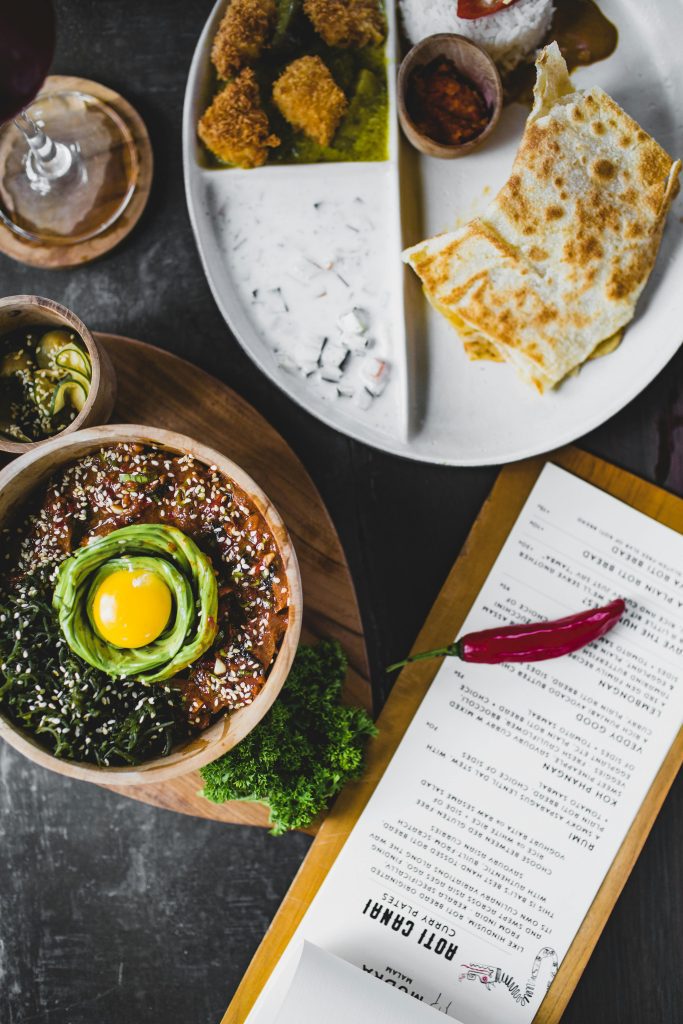
Whether you’re a seasoned chef, aspiring student, or passionate home cook, there’s no other four-week course worldwide that matches the depth of experience and culinary wisdom offered by the Exotic Culinary Arts Program. Guided by master chefs, you’ll uncover the secrets to recreating the bold, authentic flavors that have made Asia and Indonesia culinary treasures of global renown.
Advanced Technique
This program immerses you in the exotic culinary methods of Asia, particularly Indonesia, blending modern standards with ancient traditions. From haute cuisine to the distinctive simplicity of Asian culinary delights, you’ll master advanced techniques that elevate your cooking prowess.
Comprehensive Chef Training:
Prepare to impress as you learn to craft a diverse array of dishes, from appetizers to desserts, using unique Asian ingredients. Gain deep insights into authentic cooking methods and the local culinary wisdom that defines each dish’s essence.
Cultural Immersion:
Beyond the kitchen, our journey includes immersive cultural visits to chocolate producers in Bali, culinary expeditions in Balinese villages, and insights into coconut oil and Arak Bali production. Explore UNESCO heritage sites in Bali, uncovering the rich tapestry of culinary history and cultural heritage.
Sustainable Tourism and Eco-practices:
Learn about sustainable tourism principles and engage in eco-practices that emphasize preserving cultural heritage and the environment. Discover the significance of responsible travel practices in enriching travel experiences.
Tourism Entrepreneurship and Skill Development:
Through hands-on cooking classes and interactive workshops, you’ll gain invaluable insights into tourism entrepreneurship. Develop the skills to innovate and thrive in the dynamic tourism and culinary sectors, shaping your future success.
Practical Cooking Classes and Experiential Learning:
From start to finish, this all-inclusive program covers everything—from accommodations to meals and cultural excursions. Dive into practical cooking classes intertwined with visits to local markets and farms, enriching your learning with real-world applications.
Don’t miss this extraordinary opportunity to immerse yourself in Asian gastronomy, unleash your creativity in culinary arts, and embrace sustainable tourism at PIB College. Redefine your culinary skills, broaden your cultural horizons, and contribute to preserving cultural heritage and sustainable practices.
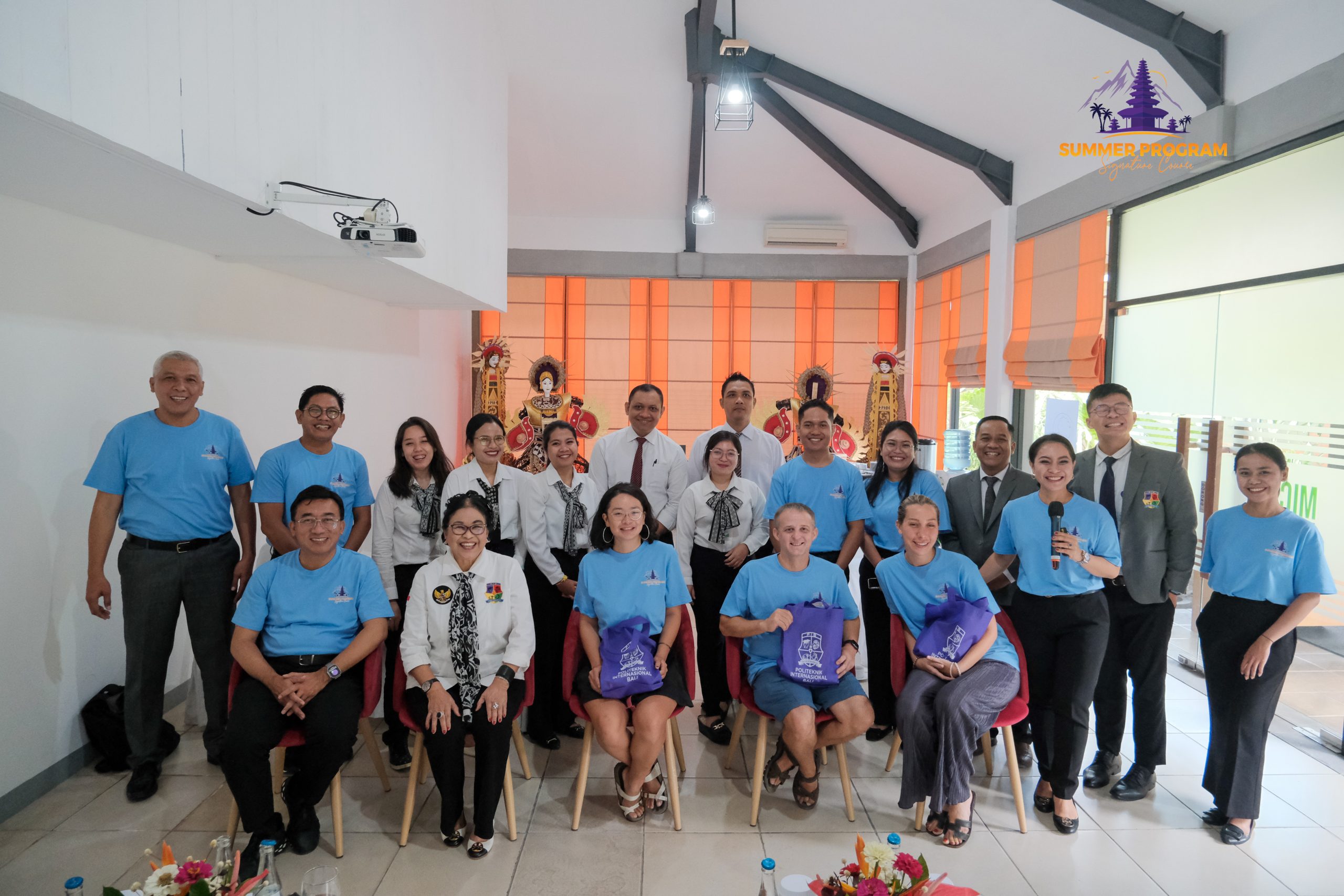
A dish is only as good as the raw ingredients that are used to construct it. This intensive introductory day gives participants a profound understanding of the most indispensable products used in regional Asian cuisine and patisserie.
Degustation and gustatory analysis are the processes by which chefs taste and analyze each single ingredient and classify them according to intensity and region, thus enabling them to create dishes and recipes authentically and, if necessary, make suitable substitutions based on a clear guideline.
The day culminates with the preparation of ‘component’ ingredients. This technique personalizes the most basic raw ingredients since some countries have limited availability of some Asian products. This allows participants to create authentic Asian cuisine anywhere in the world.
– Breakfast in the campus area
– Overview of Regional Asian and Southeast Asian Cuisine and Patisserie: facts, myths, and history
– Analysis and tasting of lesser-known raw materials necessary to construct authentic dishes in Regional Asian and Southeast Asian Cuisine:
Day 1 begins with a mega-tasting of various types of spices, herbs, teas, fermented products, tropical fruits, and much more!
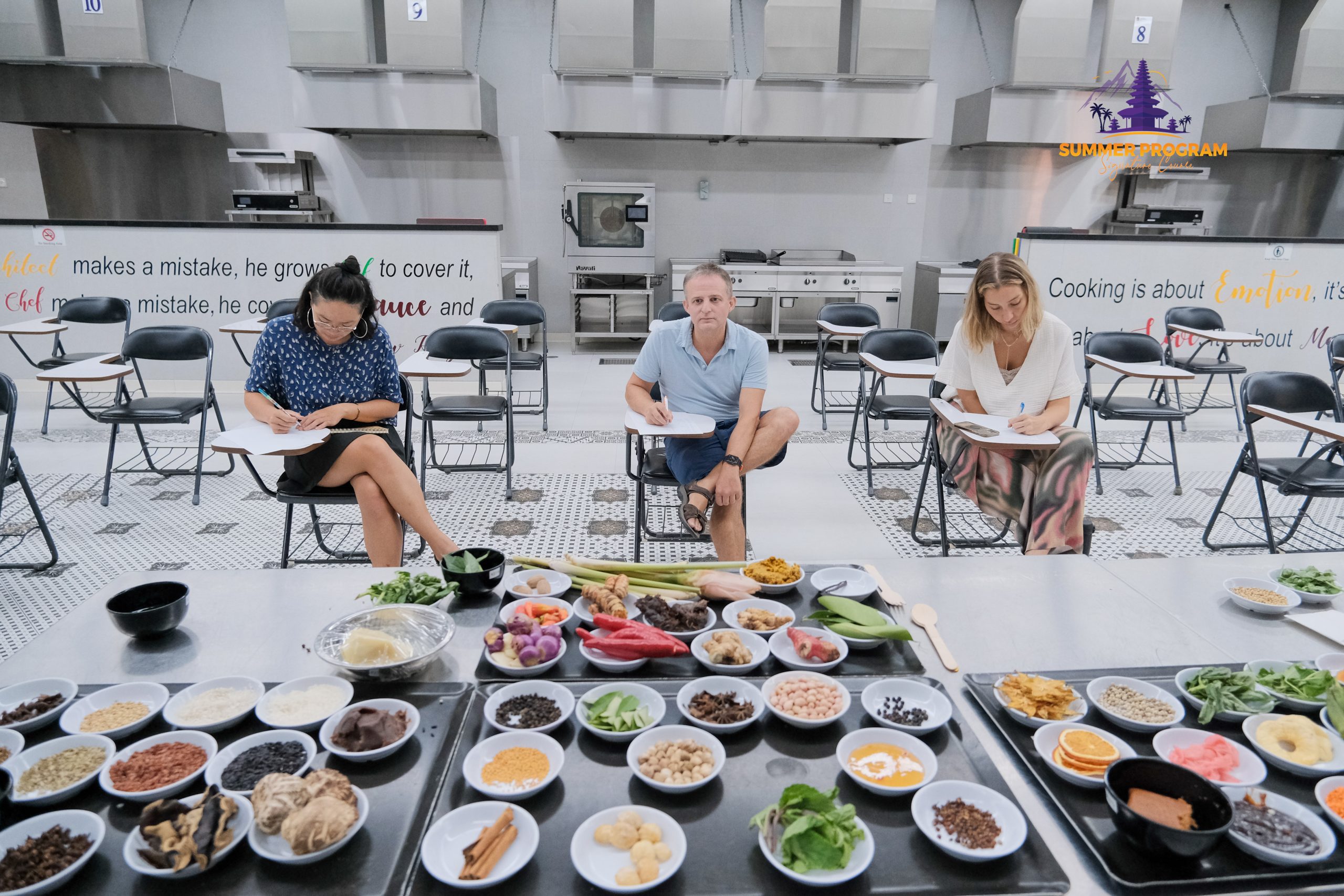 | 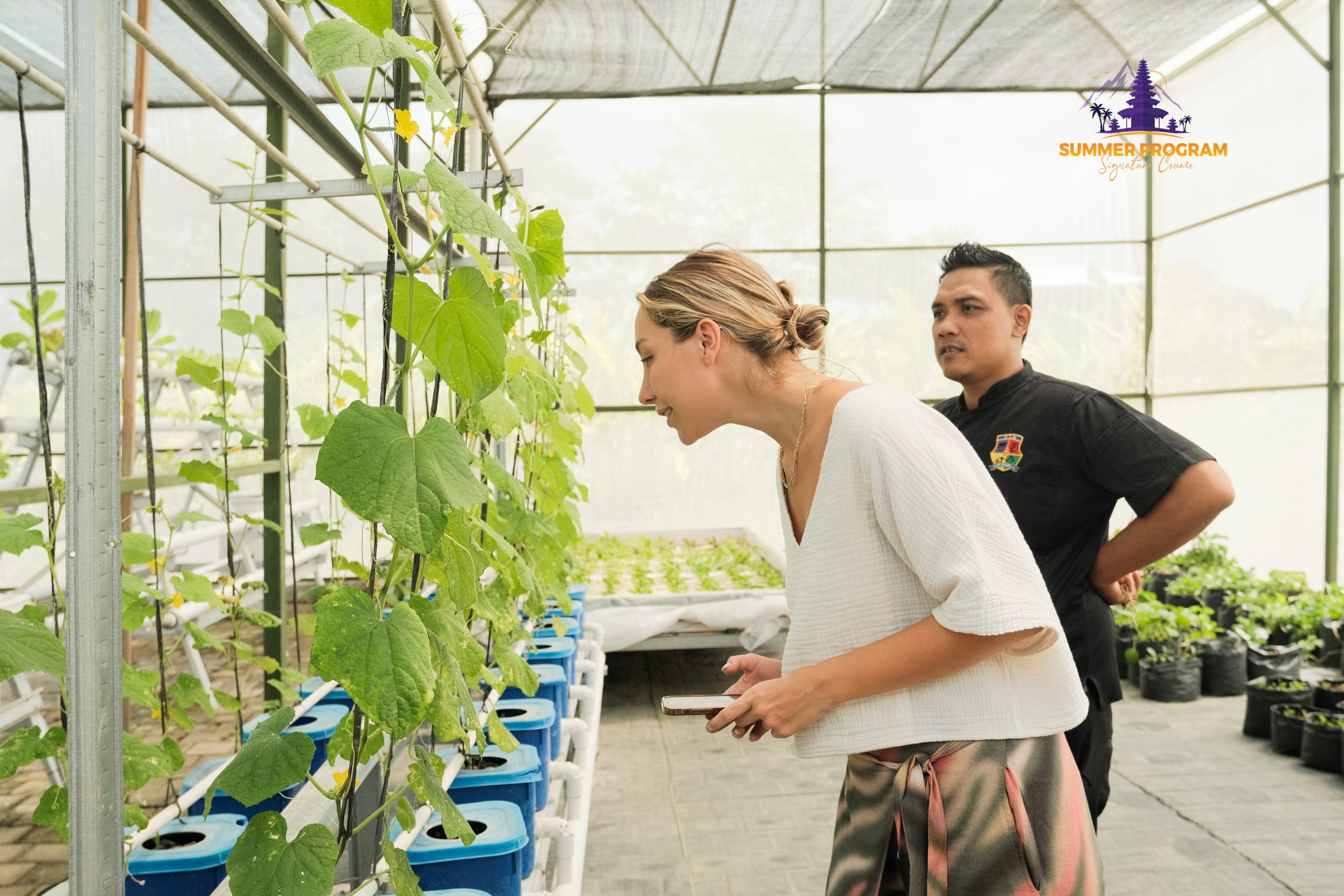 |
A day dedicated to the deep exploration of Indonesian culinary treasures. Participants will immerse themselves in the vibrant world of Indonesian herbs and spices, followed by an introduction to the rich tradition of fermented ingredients that are integral to Indonesian cuisine.
Morning Session:
Break
Afternoon Session:
Indonesian Fermented Ingredients: Tempe, Tauco, Tape, etc.
End of Session
Overnight at the Hotel
The second day will be enriched by deep discussions and an introduction to the flavors of authentic Indonesian spices and fermented foods that will leave you in awe.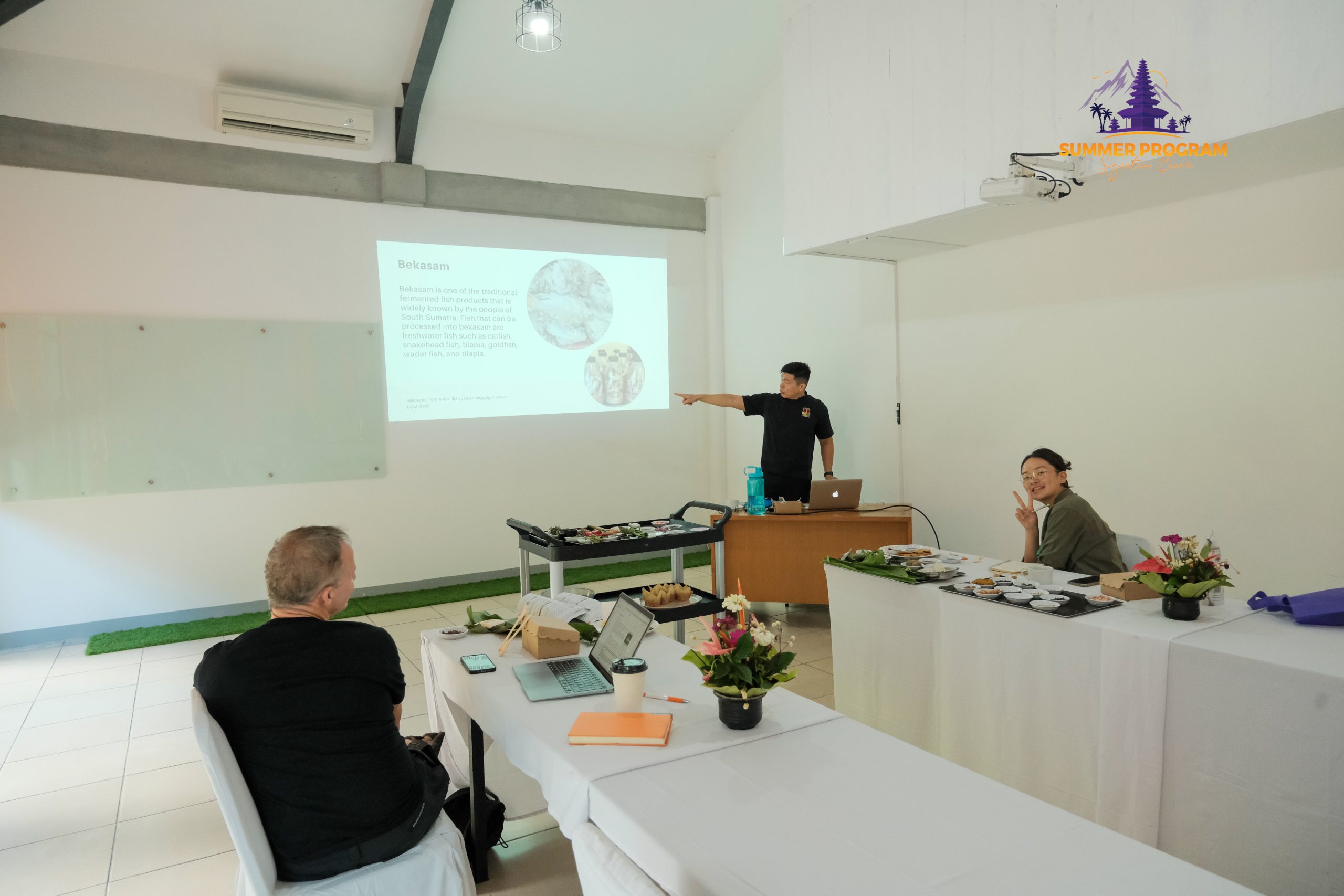
Morning Session:
At a picturesque Rumah Desa surrounded by rice fields, rivers, and the authentic rural panorama of Bali, students will start the tour with a welcome by a guide who will explain the spatial system of a traditional Balinese house. They will then learn to make Boreh, a traditional Balinese herbal medicine made from simple local ingredients rich in benefits.
In addition, they will participate in creating Canang, or offerings for the gods, consisting of various beautiful flowers. The experience continues with a walk through the forest and river, followed by hands-on farming activities where they will plow the fields using buffaloes and plant rice. The day concludes with a cup of Balinese coffee and a lunch featuring traditional Balinese culinary delights.
The fourth day offers an immersive experience in Balinese culture and ecotourism, allowing participants to engage with the local environment and traditions in a meaningful way.
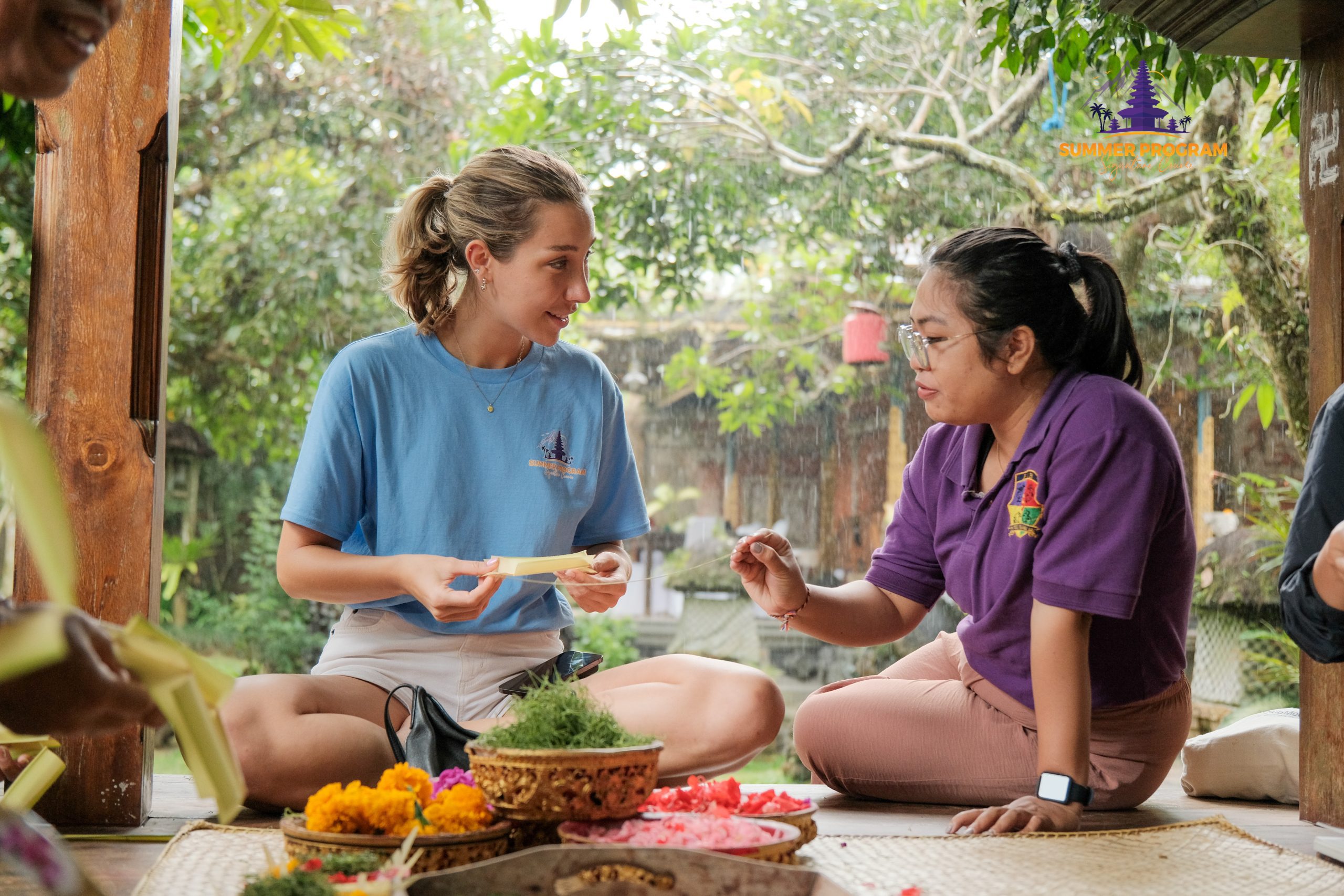 | 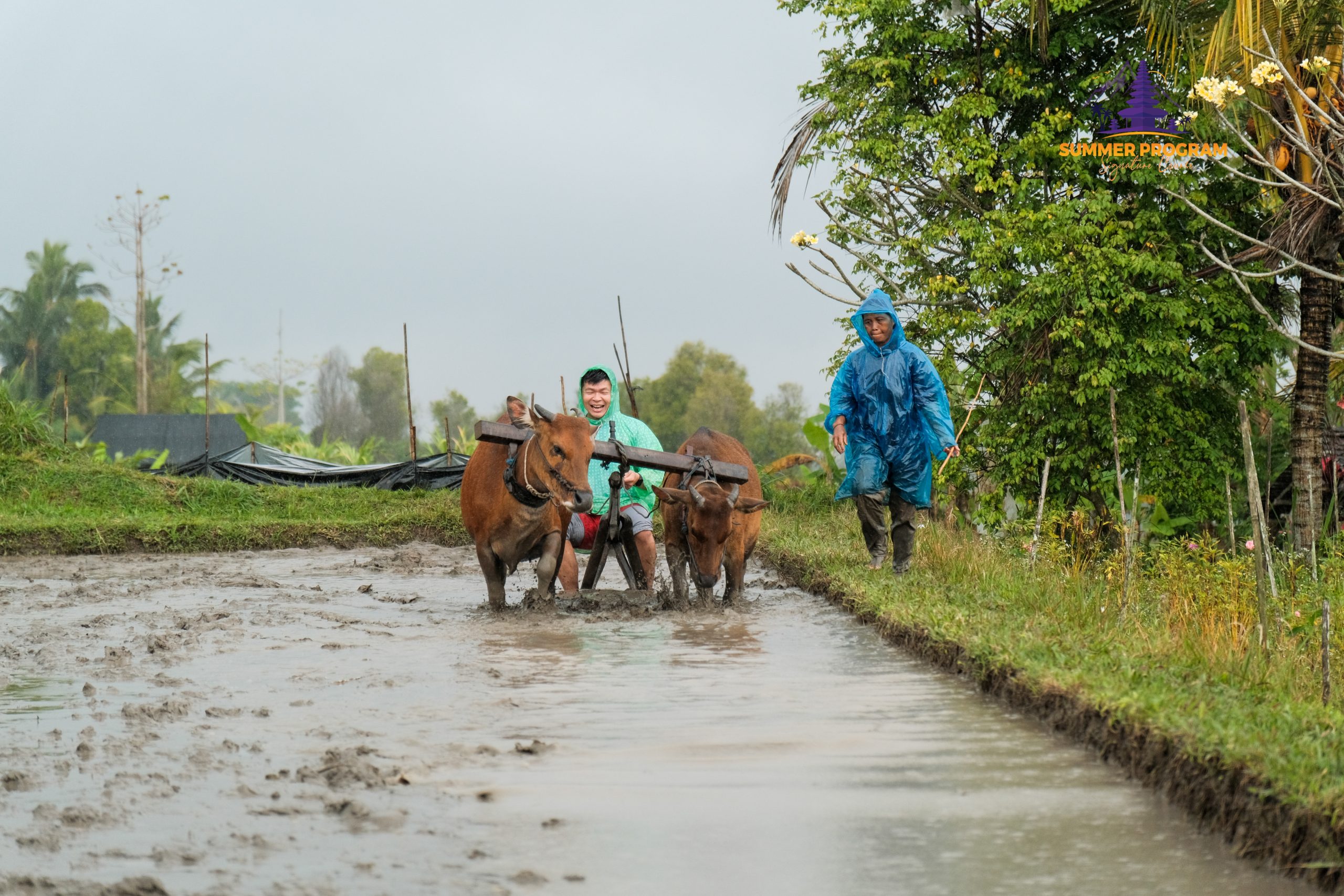 |
Morning Session:
Practical Class: Indonesian Culinary Heritage
Participants will dive into the rich tapestry of Indonesian culinary heritage through hands-on cooking sessions. The focus will be on two iconic dishes: Beef Rendang and Nasi Tumpeng.
In this practical session, students will delve into Indonesian culinary heritage through two iconic dishes: Beef Rendang and Nasi Tumpeng. Beef Rendang is a traditional meat stew from the Minangkabau ethnic group in West Sumatra, known for its complex flavors due to the slow cooking process in coconut milk with a blend of lemongrass, galangal, garlic, turmeric, ginger, and chilies. This dish represents the patience and resilience of Minangkabau culture and has gained international recognition as one of the world’s most delicious dishes. Meanwhile, Nasi Tumpeng is a traditional Indonesian dish consisting of cone-shaped rice surrounded by side dishes like fried chicken, omelet, and vegetables. The rice is colored yellow with turmeric, symbolizing wealth and moral excellence. In this session, students will also learn unique Indonesian cooking techniques, deepening their understanding of the rich culinary culture of the archipelago.
Participants will continue their hands-on cooking experience, preparing these dishes from scratch, learning the intricate techniques, and understanding the cultural stories behind them.
Tasting and Sharing Session
The day will conclude with a tasting session where participants can enjoy the fruits of their labor, sharing their dishes and experiences with their peers.
This practical class not only teaches cooking skills but also immerses participants in the cultural and historical context of Indonesian cuisine, enhancing their appreciation for these iconic dishes.
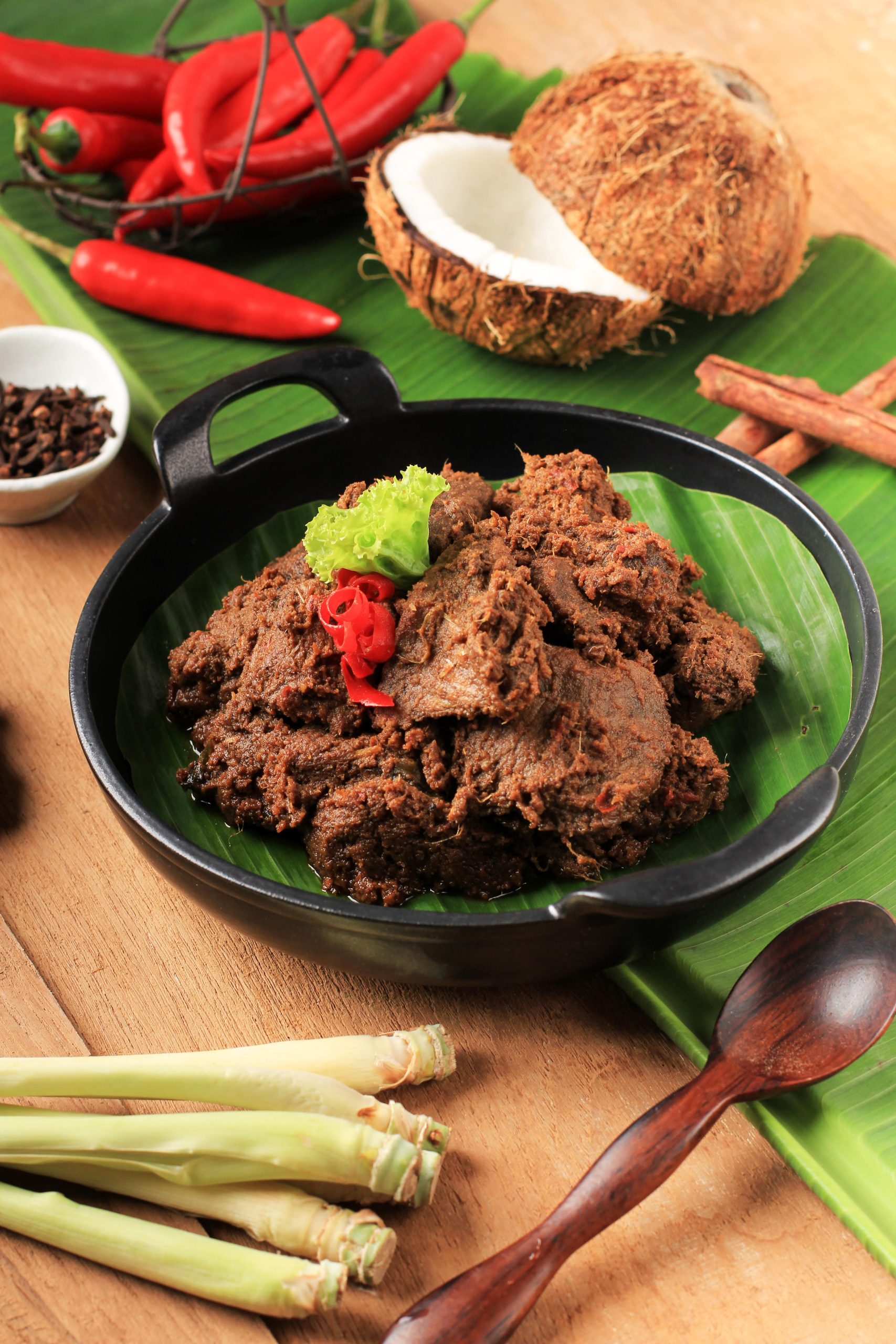 | 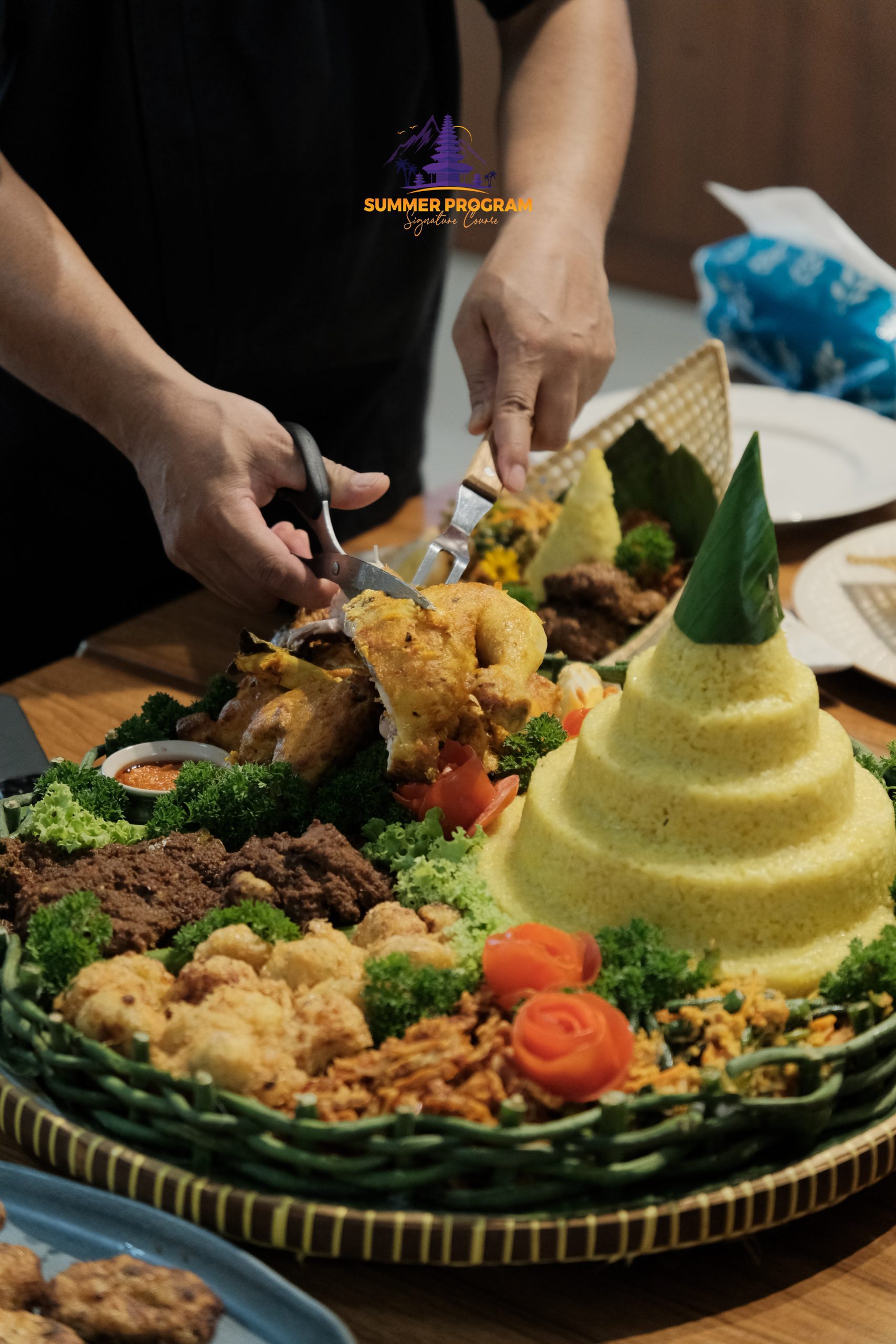 |
Morning Session:
Participants will explore the rich history of Indonesian culinary heritage through interactive cooking sessions. The focus will be on two traditional dishes: Ayam Betutu and Soto Ayam.
During this practical session, students will immerse themselves in Indonesian culinary heritage by preparing two iconic dishes: Ayam Betutu and Soto Ayam. Ayam Betutu is a classic Balinese dish where chicken is marinated in a blend of spices, wrapped in banana leaves, and slow-cooked to achieve tender, flavorful meat. This dish showcases the complex spice mixtures and slow cooking methods unique to Balinese cuisine. Soto Ayam, on the other hand, is a beloved Indonesian chicken soup made with turmeric, lemongrass, and various herbs, typically served with rice cakes or vermicelli. This dish highlights the rich and diverse soup traditions found in Indonesian cuisine. In this session, students will also learn distinctive Indonesian cooking techniques, enhancing their understanding of the archipelago’s culinary richness.
Participants will continue their hands-on cooking experience by preparing these dishes from scratch, mastering the intricate techniques, and discovering the cultural significance behind them.
The day will end with a tasting session, allowing participants to savor the results of their efforts and share their dishes and experiences with their peers.
This practical class not only imparts cooking skills but also immerses participants in the cultural and historical context of Indonesian cuisine, deepening their appreciation for these iconic dishes.
 | 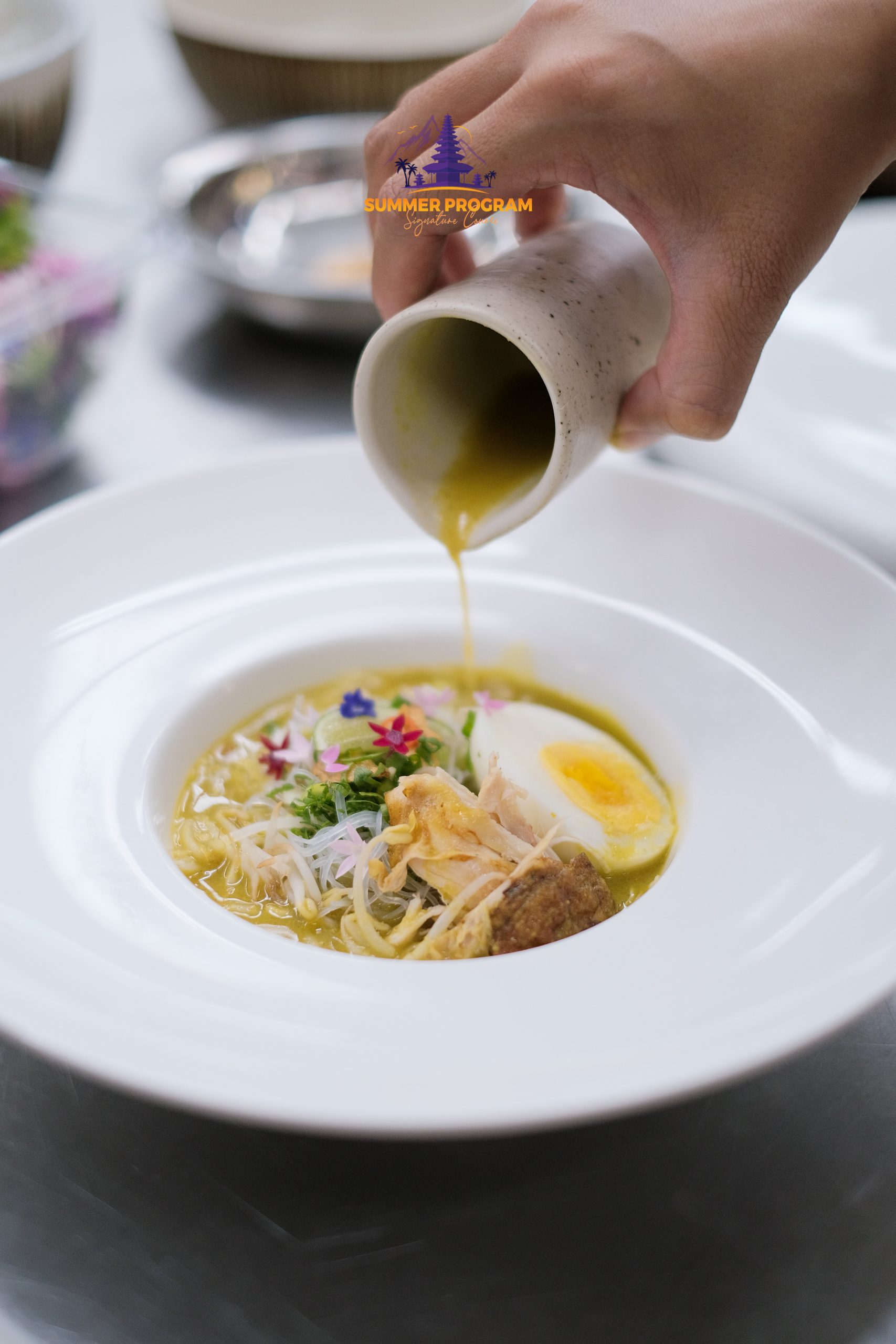 |
Morning Session: Practical Class: Indonesian Culinary Heritage Participants will immerse themselves in Indonesian culinary traditions through interactive, hands-on cooking sessions. The focus will be on two classic dishes: Chicken Satay and Fried Rice.
In this practical session, students will dive into the rich heritage of Indonesian cuisine by making two renowned dishes: Chicken Satay and Fried Rice. Chicken Satay features marinated chicken skewers that are grilled to perfection and served with a savory peanut sauce, showcasing the flavorful and grilling techniques typical of Indonesian street food. Fried Rice, known locally as Nasi Goreng, is a beloved Indonesian dish where rice is stir-fried with various ingredients such as eggs, vegetables, and meats, and flavored with soy sauce and spices. This dish highlights the creativity of Indonesian cooking in turning simple ingredients into a delicious and satisfying meal. Throughout this session, students will also learn specific Indonesian cooking techniques, deepening their appreciation for the rich culinary traditions of the archipelago.
Participants will engage in hands-on cooking, preparing these dishes from scratch, mastering the complex techniques, and understanding the cultural significance behind them.
Tasting and Sharing Session The day
will culminate in a tasting session where participants can savor their culinary creations and share their experiences and dishes with their peers.
This practical class not only equips participants with essential cooking skills but also immerses them in the cultural and historical backgrounds of Indonesian cuisine, enhancing their understanding and appreciation of these iconic dishes.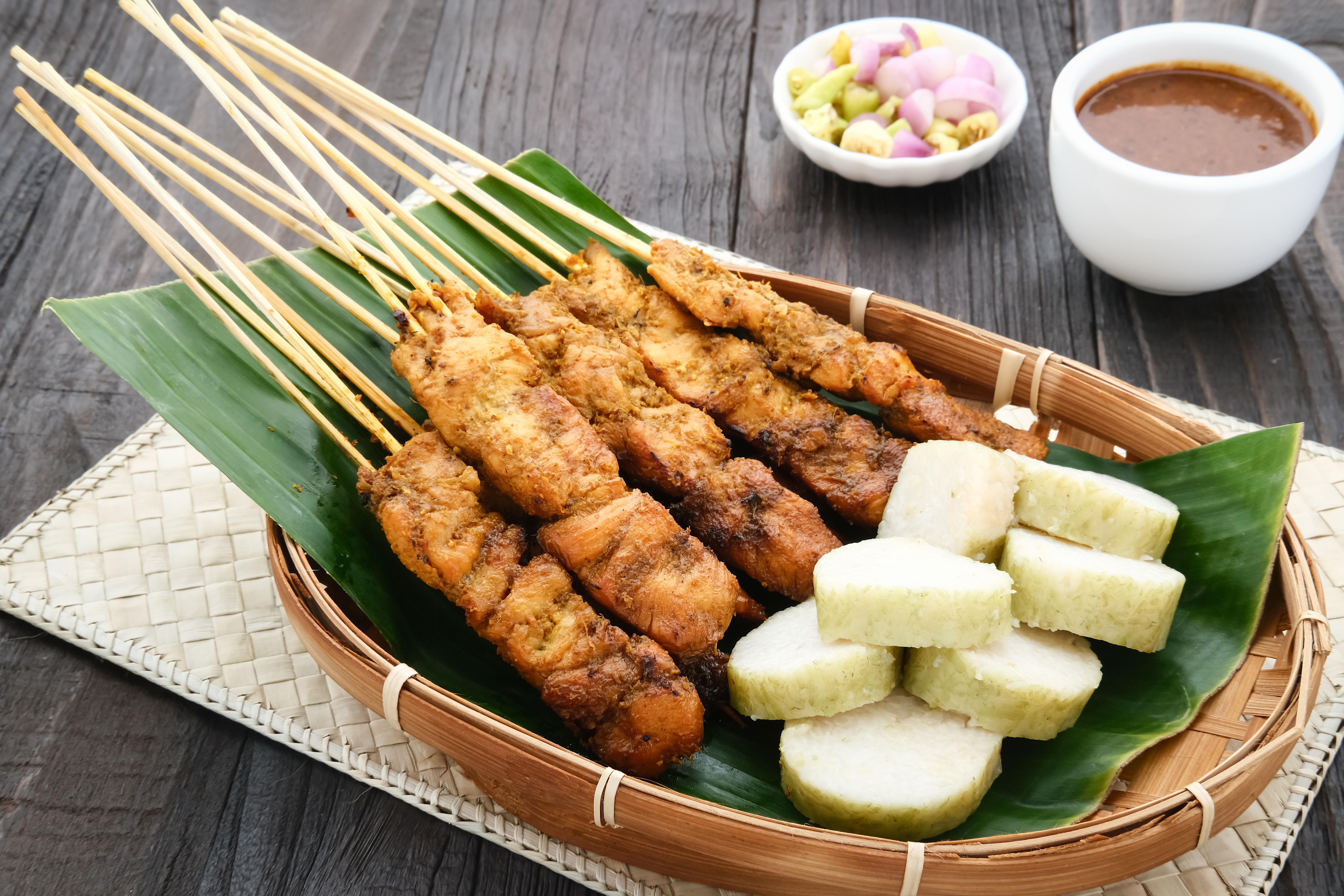
In Bongan Village, participants will learn about the traditional process of making coconut oil at a producer that has preserved these methods for generations. Local artisans will guide you through the entire process, using unique traditional tools. In their distinctive factory, surrounded by scenic rice fields, you will engage in activities from peeling and grating to cooking the coconuts. Additionally, you will get to taste simple local snacks such as boiled cassava and gonda leaf tea, a native Balinese plant, while interacting directly with the local community.
Riding an ATV along Bali’s coastline during sunset promises an unforgettable experience. You will navigate a picturesque track, starting from rice fields filled with ducks and herons, moving through traditional Balinese village paths, and racing along the expansive beaches of Bali, accompanied by a magical sunset.
This day will provide you with unforgettable experiences, from learning and meeting local people to adrenaline-pumping activities.
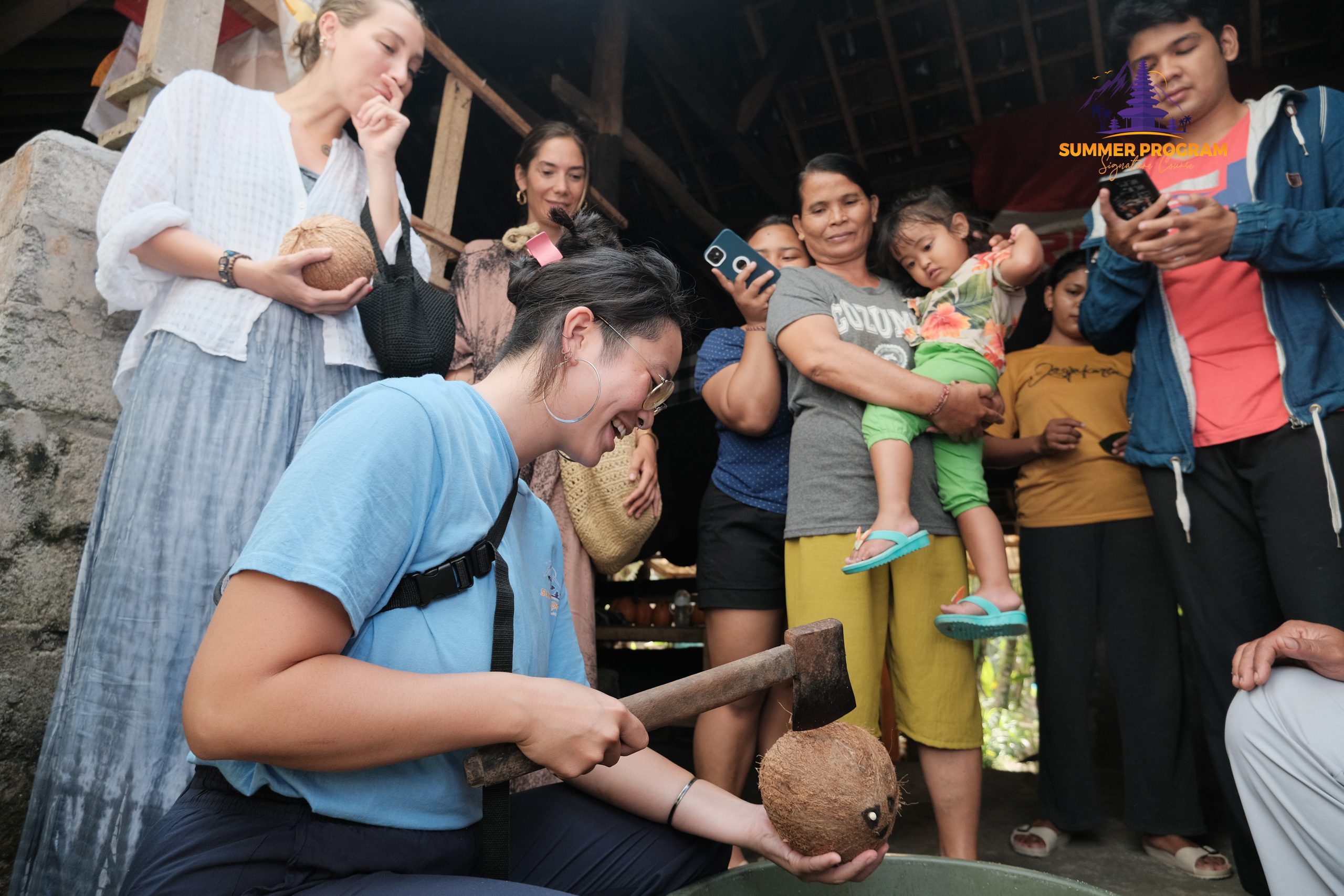 | 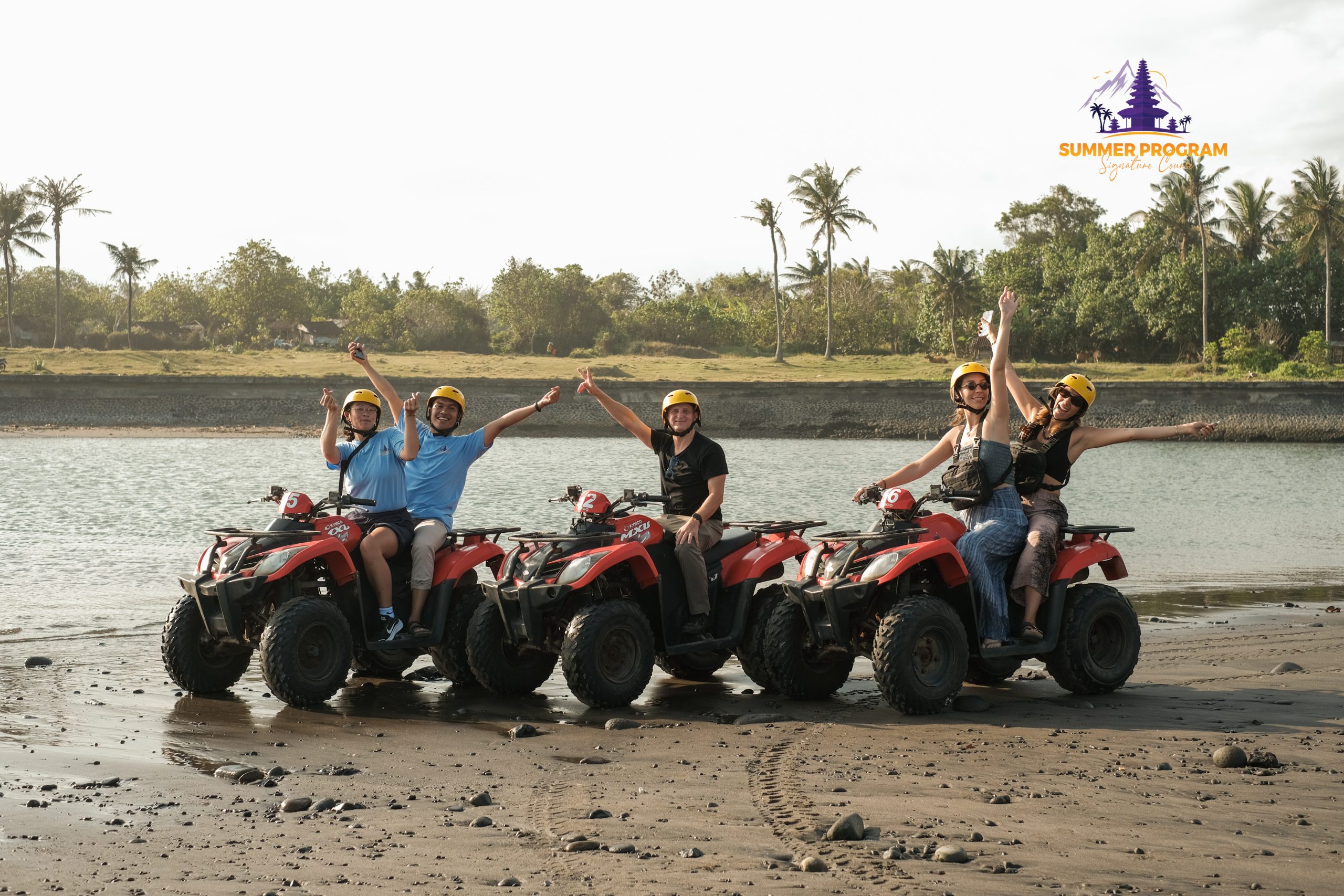 |
Morning Session:
Practical Class: Asian Exotic Cuisine (Thailand)
Participants will delve into the rich and vibrant flavors of Thai cuisine through hands-on cooking sessions. The focus will be on two iconic dishes: Tom Yam Gong and Som Tum.
In this practical session, students will explore the exotic culinary traditions of Thailand by preparing two famous dishes: Tom Yam Gong and Som Tum. Tom Yam Gong is a spicy and sour Thai soup made with shrimp, lemongrass, kaffir lime leaves, galangal, lime juice, fish sauce, and crushed chili peppers. This dish exemplifies the bold and complex flavors typical of Thai cuisine. Som Tum, on the other hand, is a popular Thai salad made from shredded green papaya, tomatoes, peanuts, dried shrimp, and a dressing of lime juice, fish sauce, and palm sugar. This dish highlights the fresh and tangy taste profile that is characteristic of Thai food. During this session, students will also learn specific Thai cooking techniques, enhancing their appreciation for the rich culinary heritage of Thailand.
Participants will continue their hands-on cooking experience, preparing these dishes from scratch, learning the intricate techniques, and understanding the cultural stories behind them.
Tasting and Sharing Session
The day will conclude with a tasting session where participants can enjoy the fruits of their labor, sharing their dishes and experiences with their peers.
This practical class not only imparts valuable cooking skills but also immerses participants in the cultural and historical context of Thai cuisine, fostering a deeper appreciation for these iconic dishes.
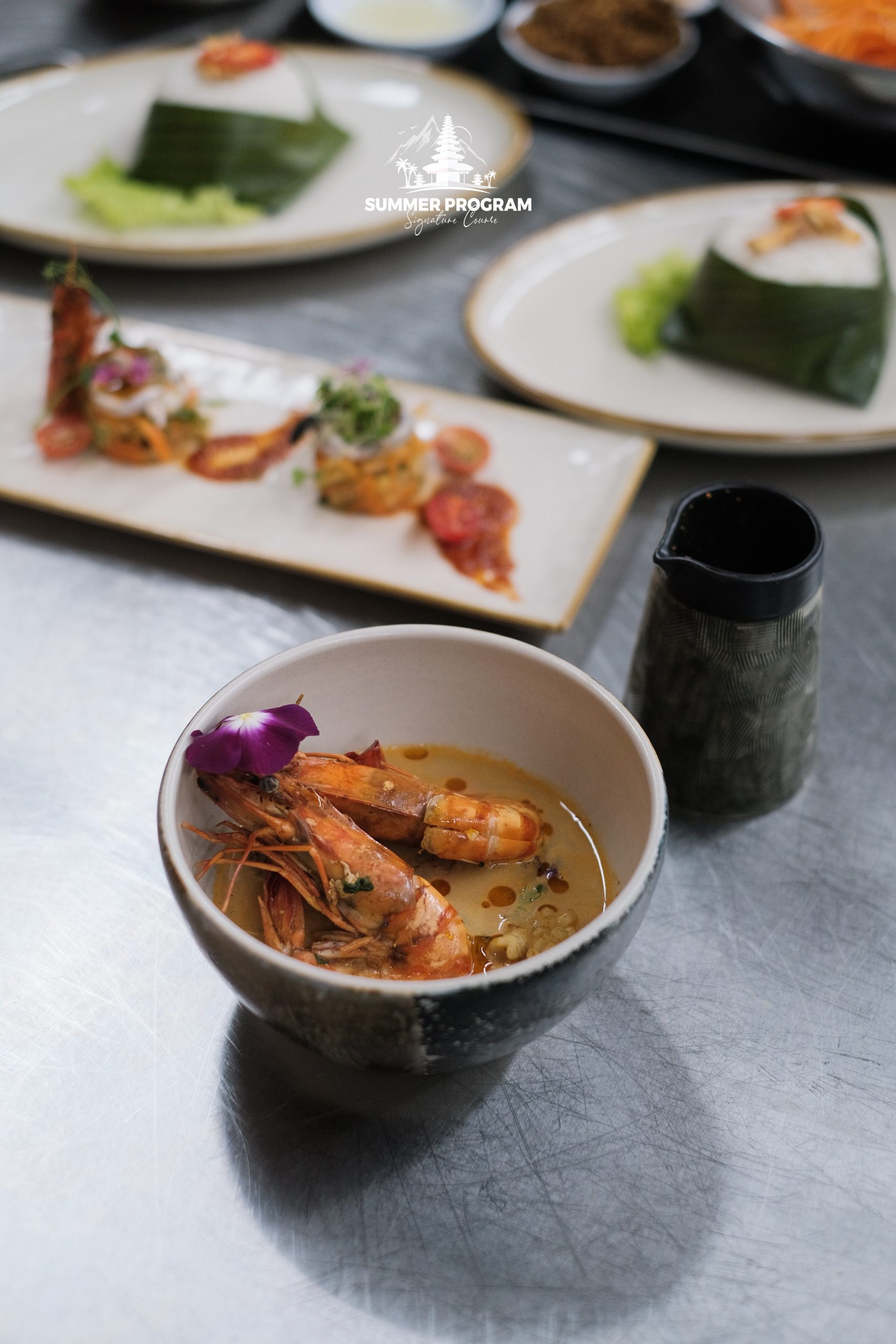 | 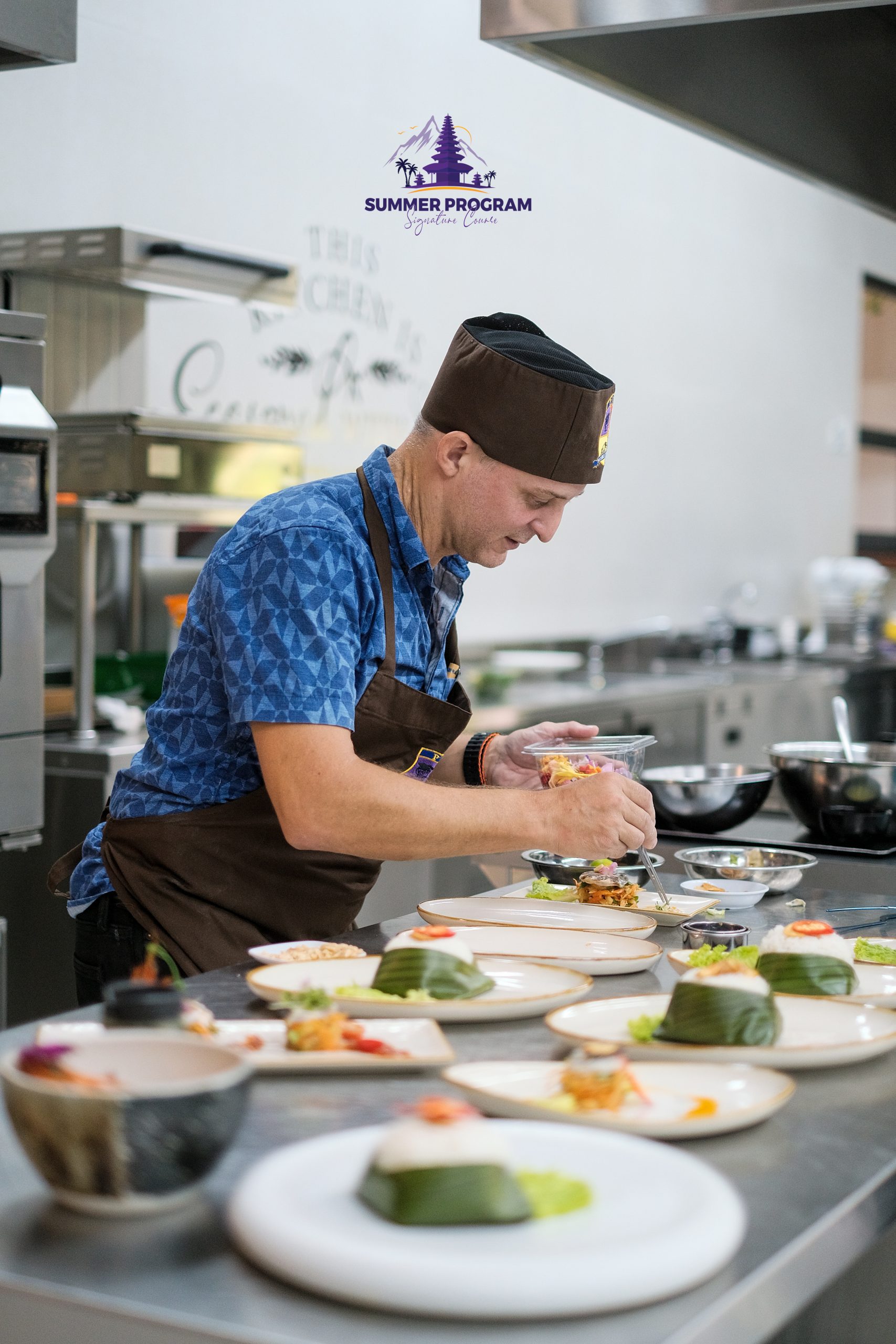 |
Morning Session:
Practical Class: Asian Exotic Cuisine (Korea)
Participants will explore the rich and diverse flavors of Korean cuisine through interactive, hands-on cooking sessions. The focus will be on two iconic dishes: Kimchi and Bulgogi.
In this practical session, students will dive into the culinary traditions of Korea by preparing two renowned dishes: Kimchi and Bulgogi. Kimchi is a traditional Korean side dish made from fermented vegetables, most commonly napa cabbage and radishes, seasoned with chili pepper, garlic, ginger, and scallions. This dish showcases the unique fermentation process and bold flavors that are hallmarks of Korean cuisine. Bulgogi, on the other hand, is a popular Korean dish consisting of marinated beef that is grilled or stir-fried, featuring a savory and slightly sweet marinade made from soy sauce, sugar, sesame oil, garlic, and pepper. This dish highlights the balance of flavors and the grilling techniques typical of Korean cooking. During this session, students will also learn specific Korean cooking methods, enhancing their understanding of the rich culinary heritage of Korea.
Participants will continue their hands-on cooking experience, preparing these dishes from scratch, mastering the intricate techniques, and appreciating the cultural significance behind them.
Tasting and Sharing Session
The day will culminate in a tasting session where participants can savor their culinary creations and share their experiences and dishes with their peers.
This practical class not only imparts valuable cooking skills but also immerses participants in the cultural and historical context of Korean cuisine, fostering a deeper appreciation for these iconic dishes.
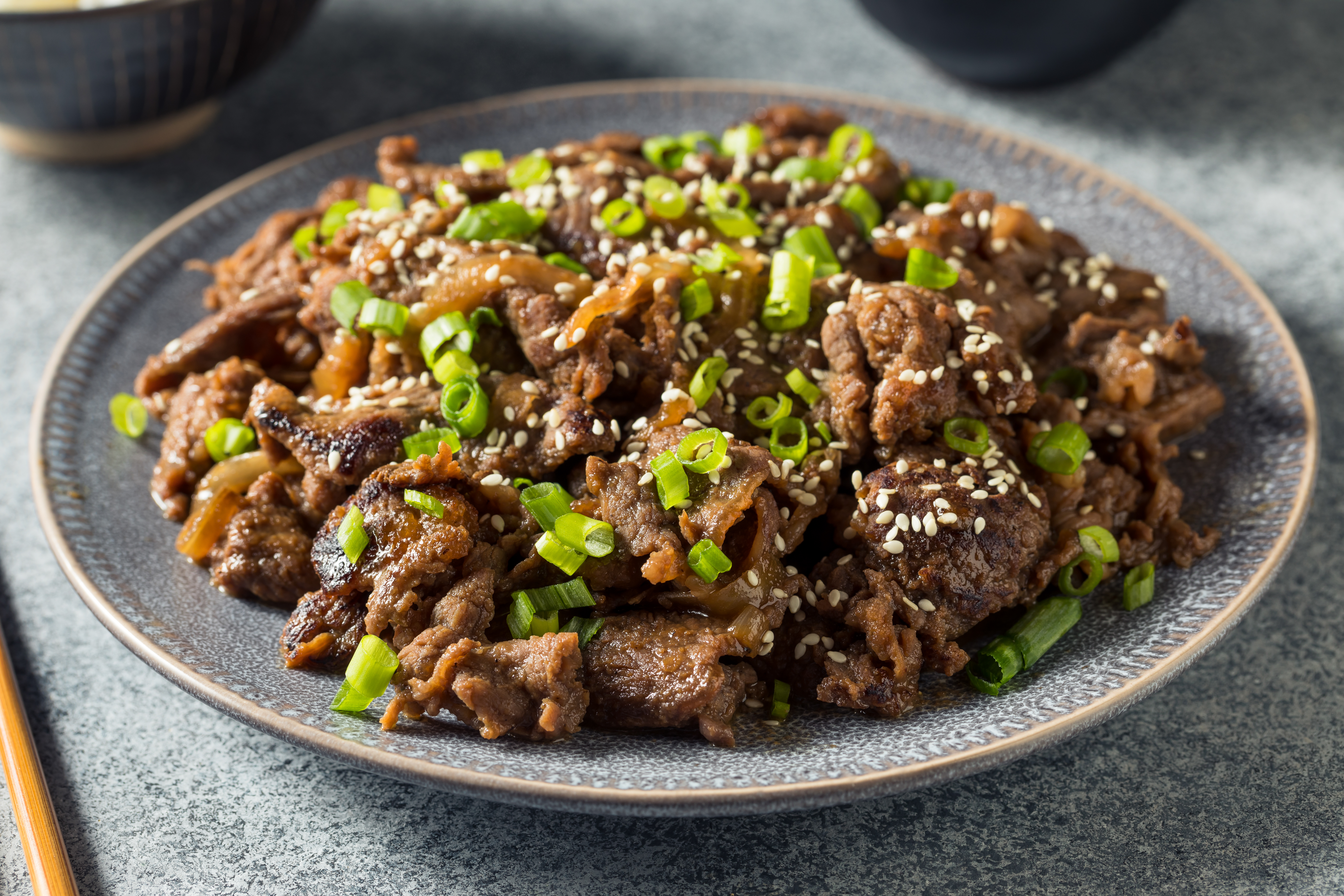 | 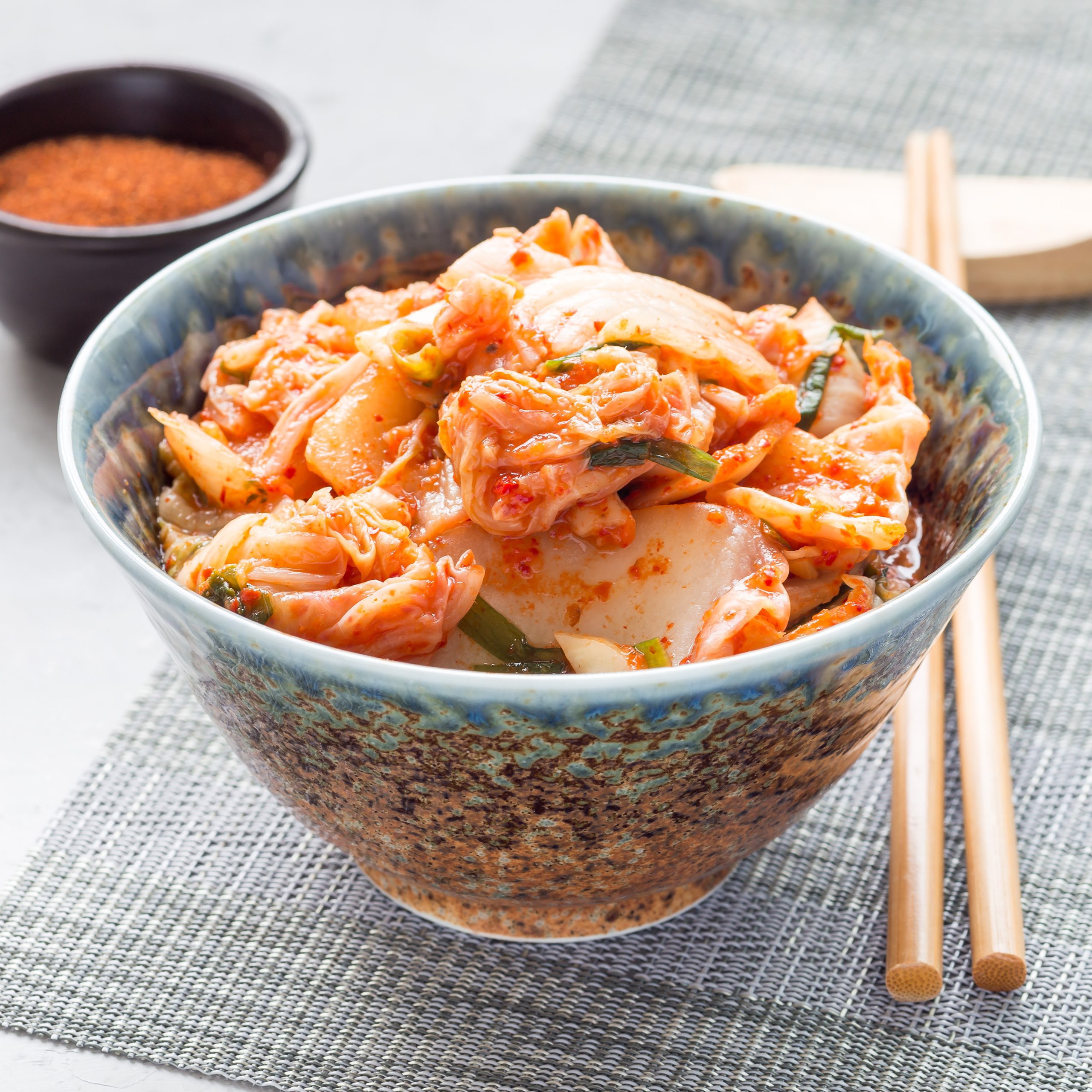 |
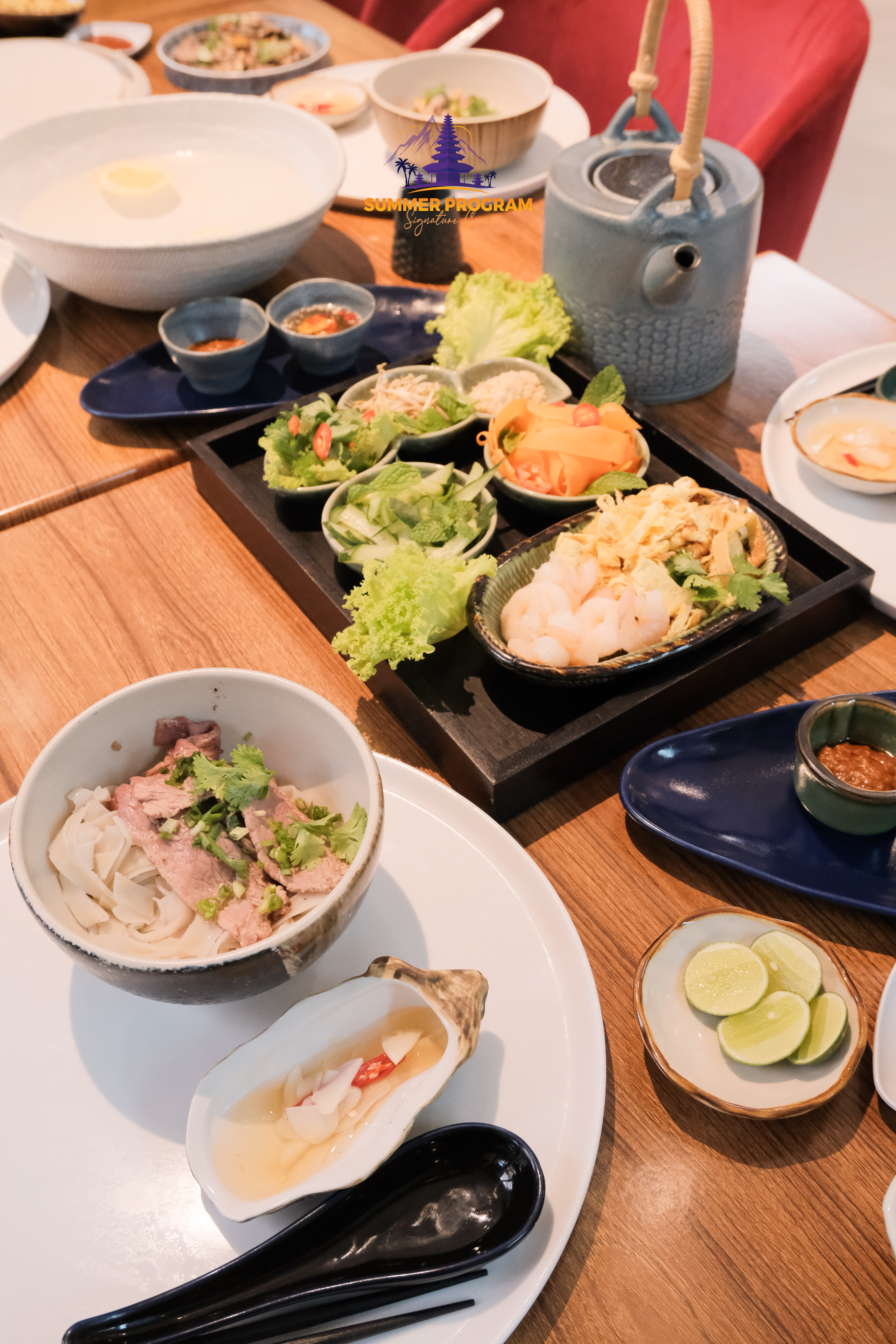 | 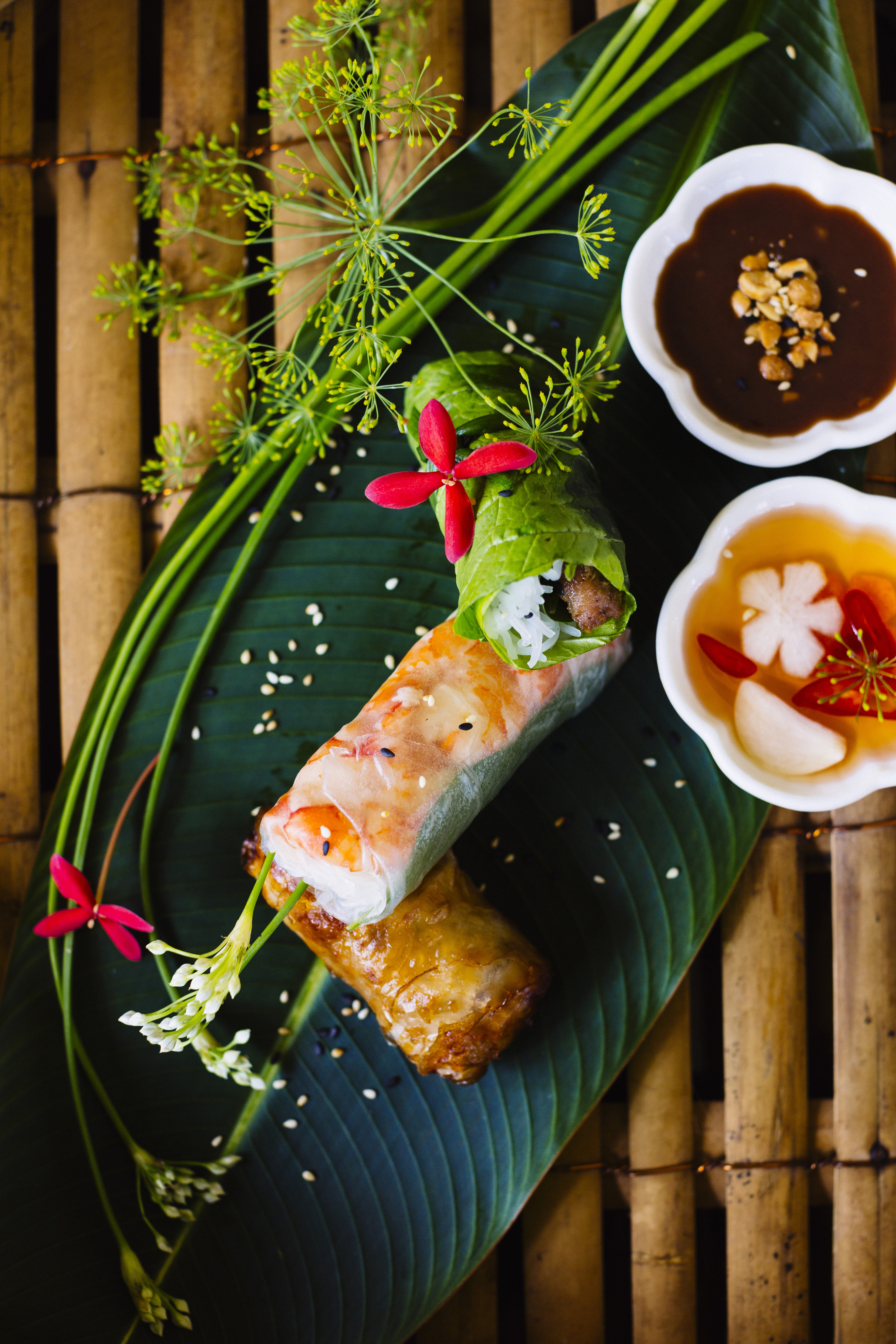 |
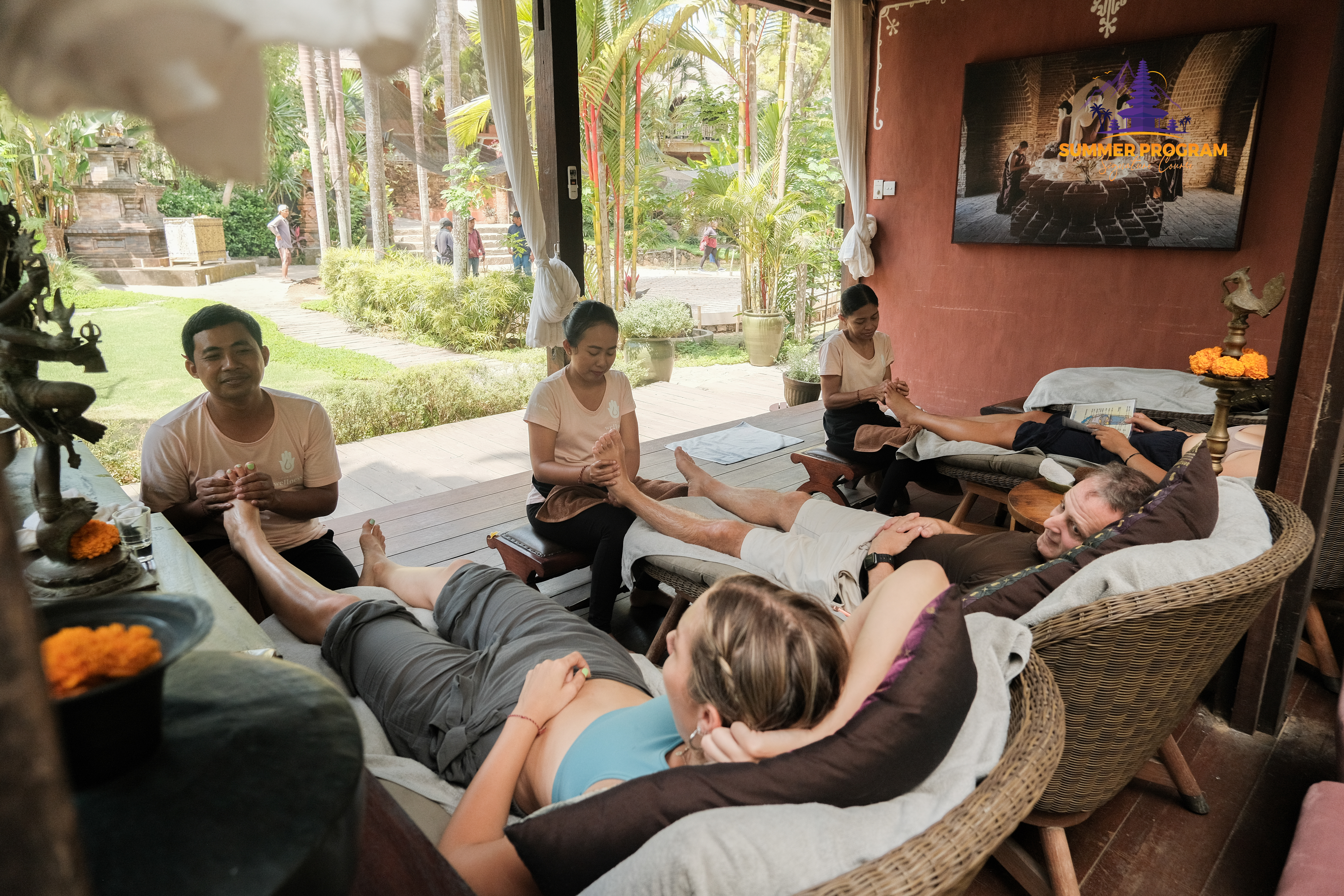 | 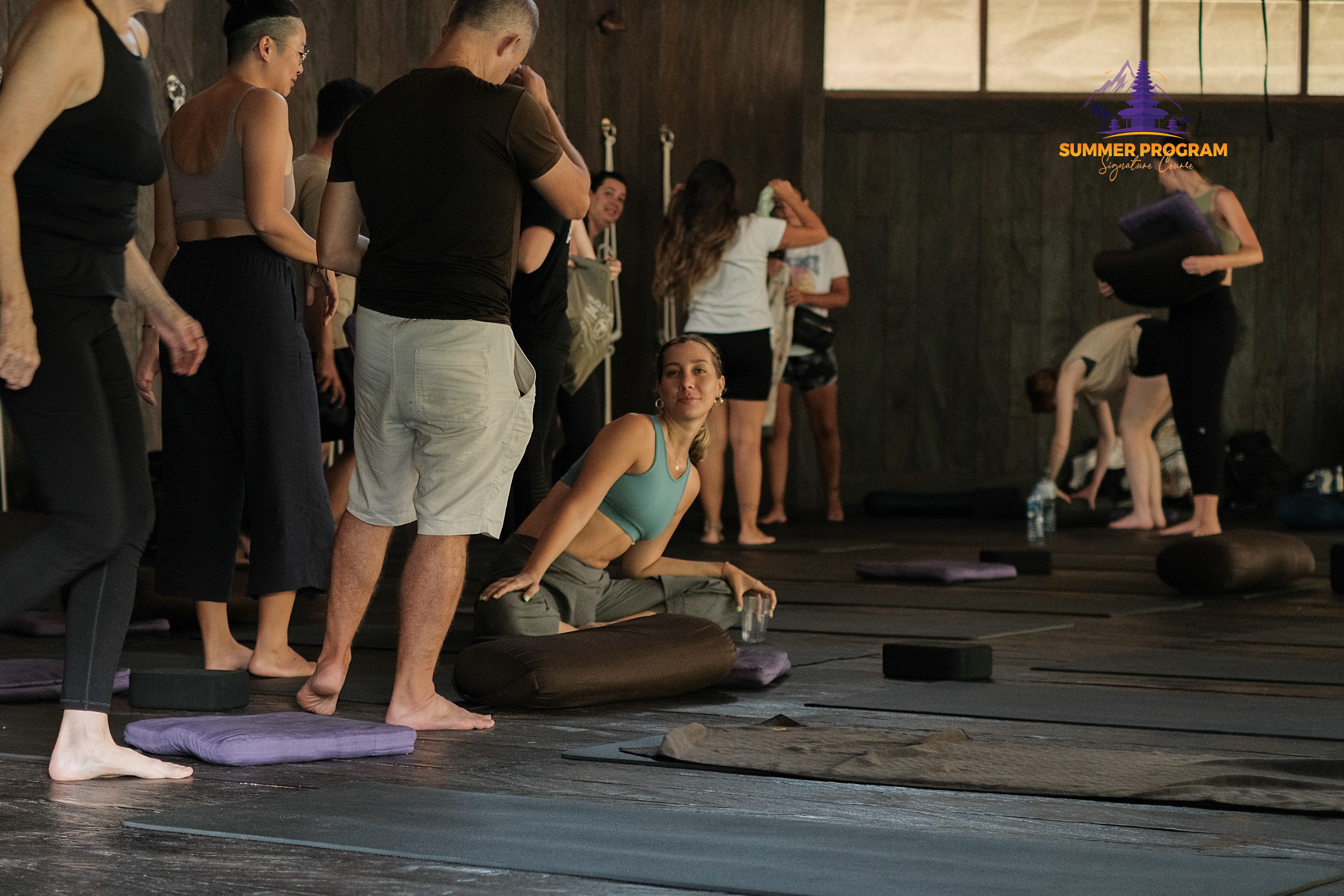 |
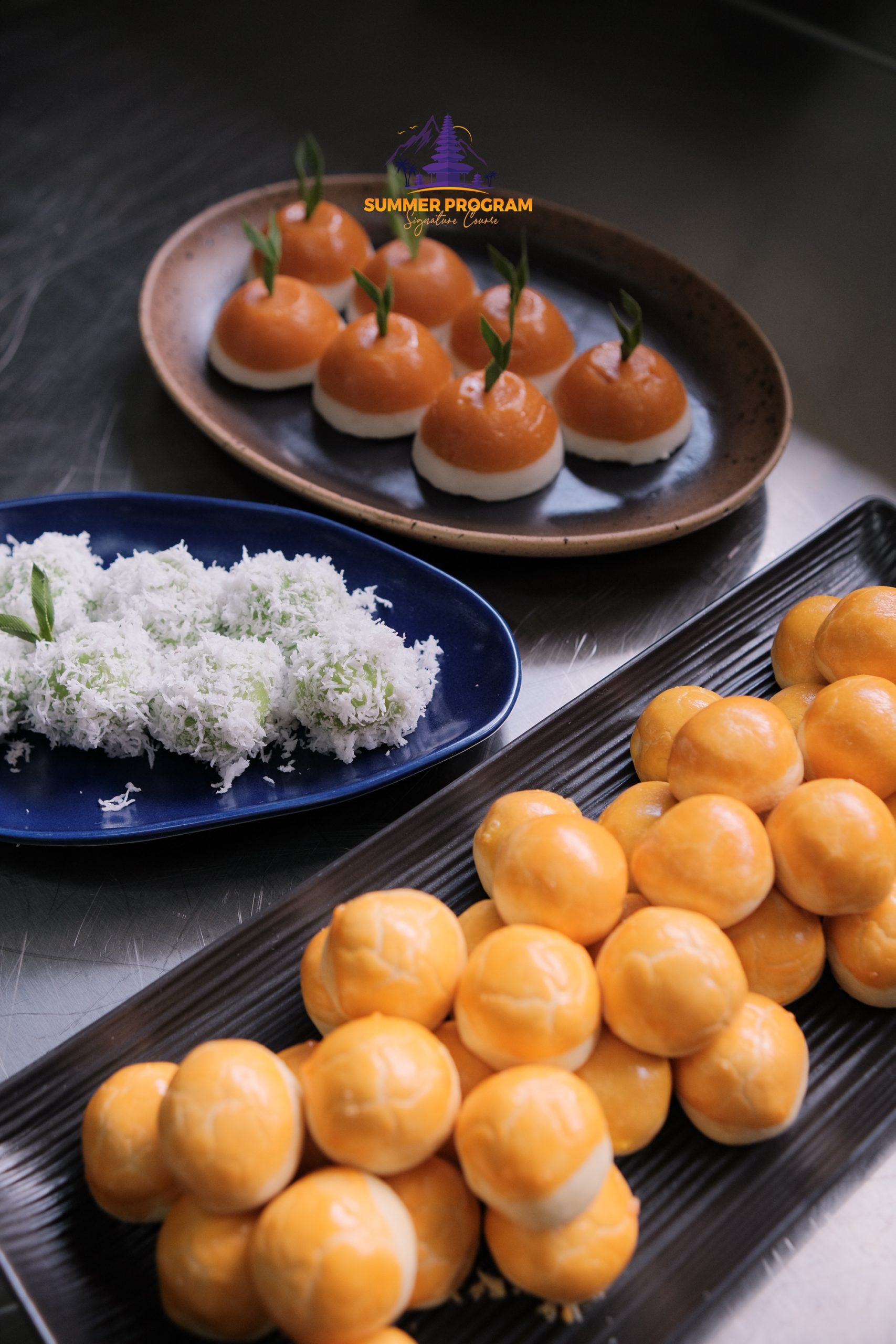 | 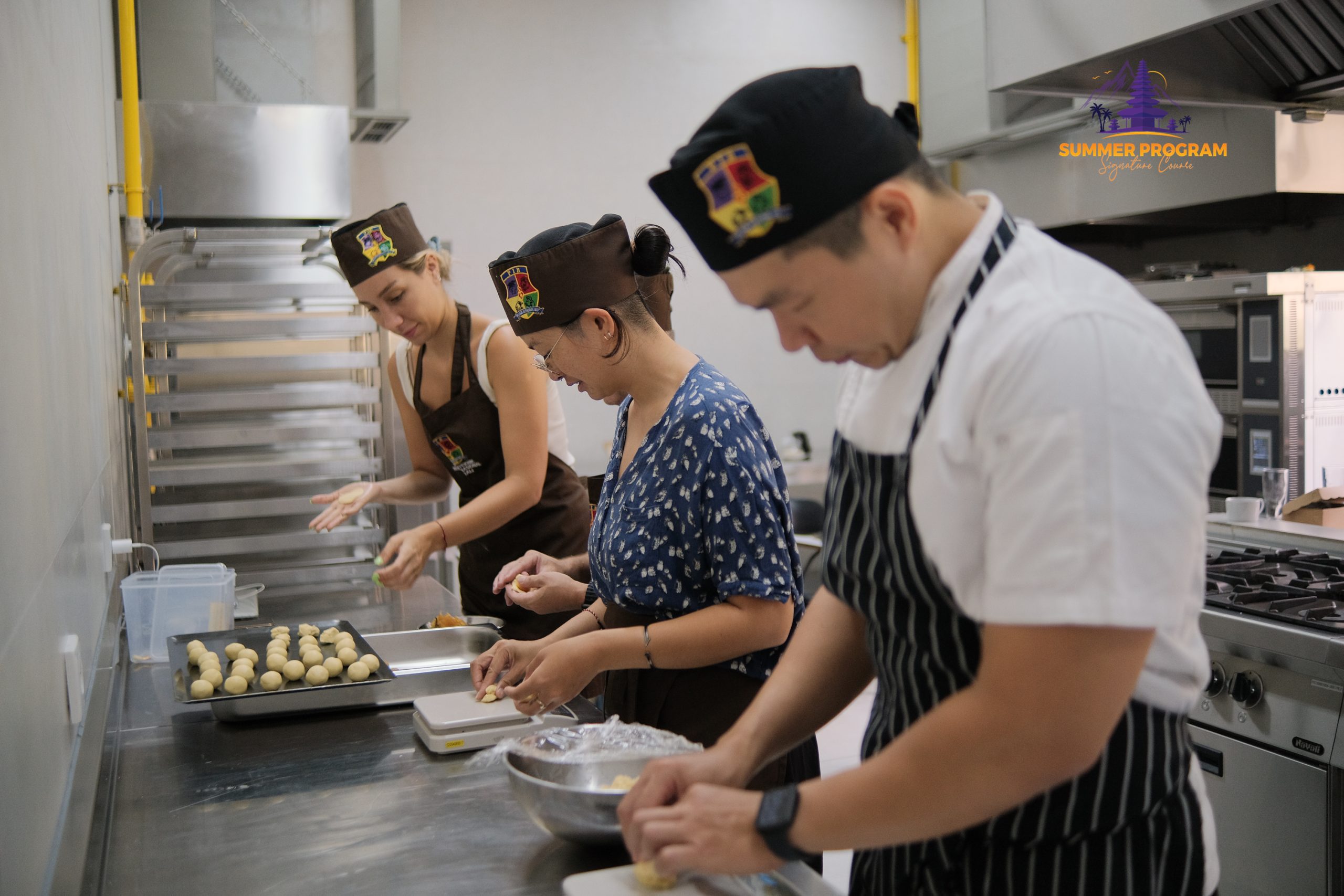 |
Join Mr. Victor, Head of the Hotel Management Study Program, for an exclusive session on restaurant management. From brainstorming business ideas to in-depth discussions on overcoming challenges and seizing opportunities, Mr. Victor will share invaluable insights gleaned from years in the hospitality industry. Gain expertise in current trends and best practices in tourism entrepreneurship, empowering you to turn your culinary dreams into reality.
Coffee Break
Course Assessment
Receive your final course assessment from Chef Billy, Head of Culinary Arts. This evaluation, based on your four-week journey, not only measures your progress but also sets the stage for earning your well-deserved certification.
Verbal Feedback Session
Engage in an open discussion with PIB’s Vice Director to shape the future of our short courses. Your feedback will drive the development of upcoming programs, ensuring they meet your expectations and aspirations.
Hypnotherapy Glass Walking
Experience the thrill of glass walking under the guidance of a Master Coach. This empowering activity is designed to push boundaries and harness the power of your mindset. Imagine conquering fear and maximizing your potential in a safe and exhilarating environment. This session promises to be a highlight, leaving you inspired and empowered to take on new challenges head-on.
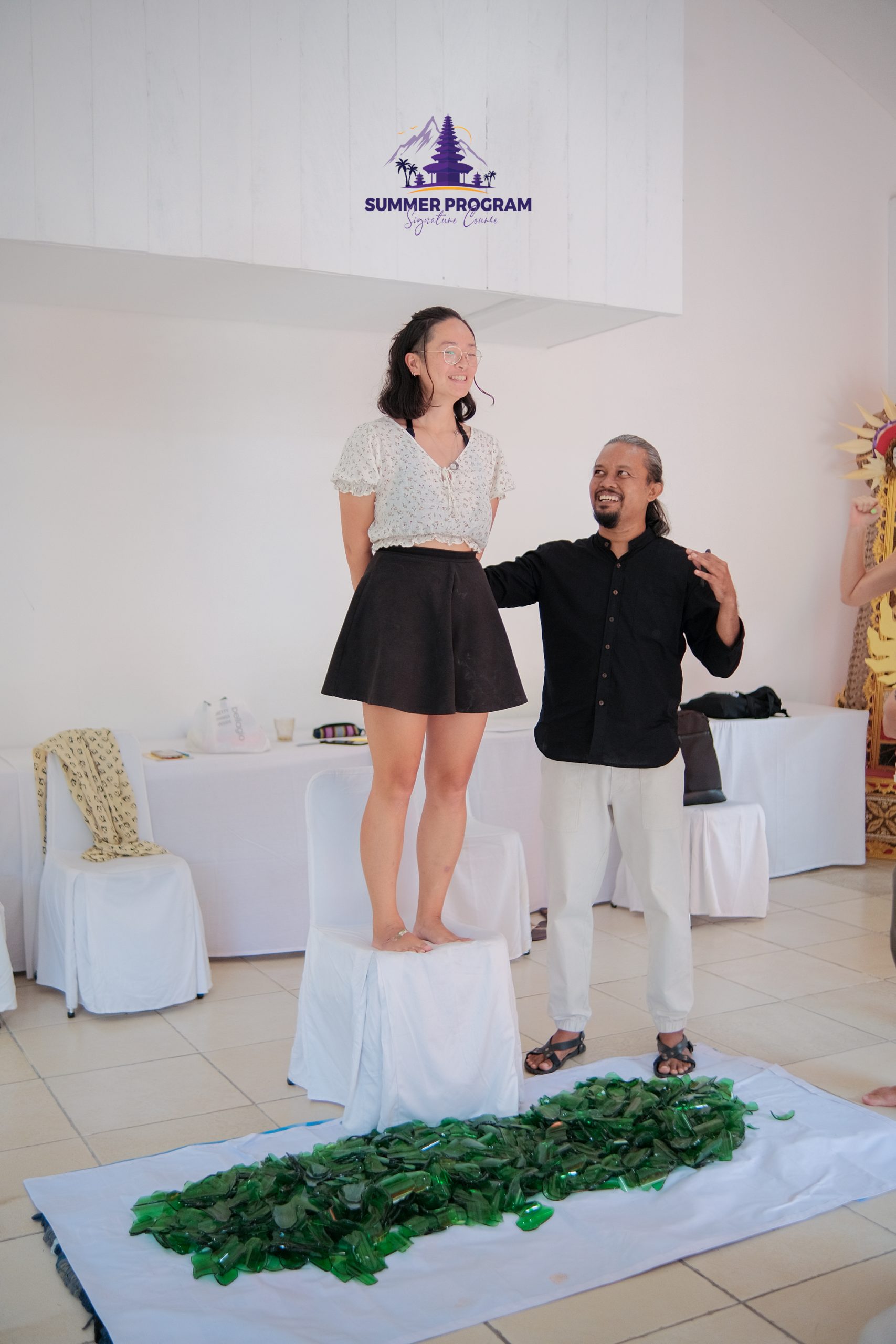 | 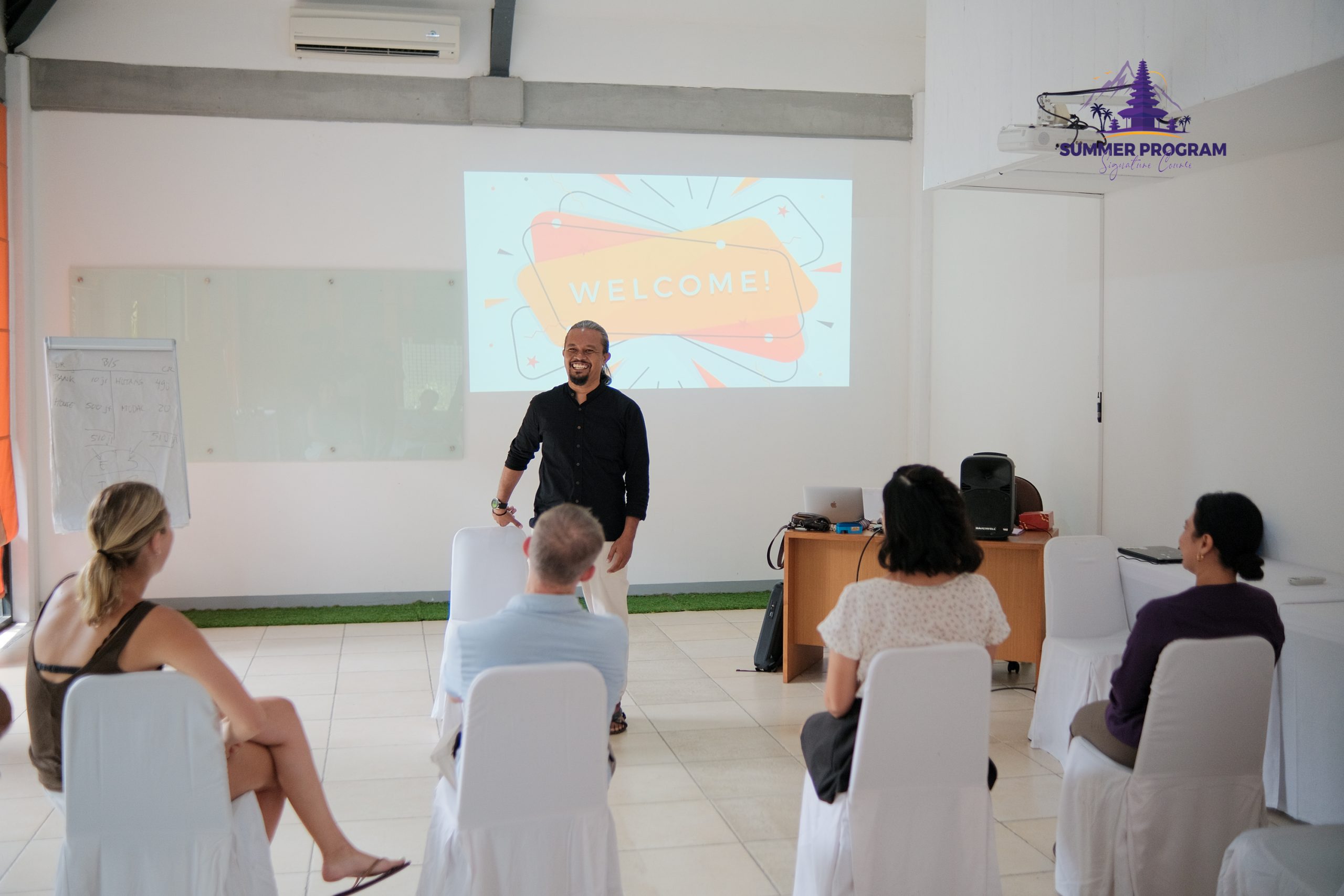 |
Return to Hotel: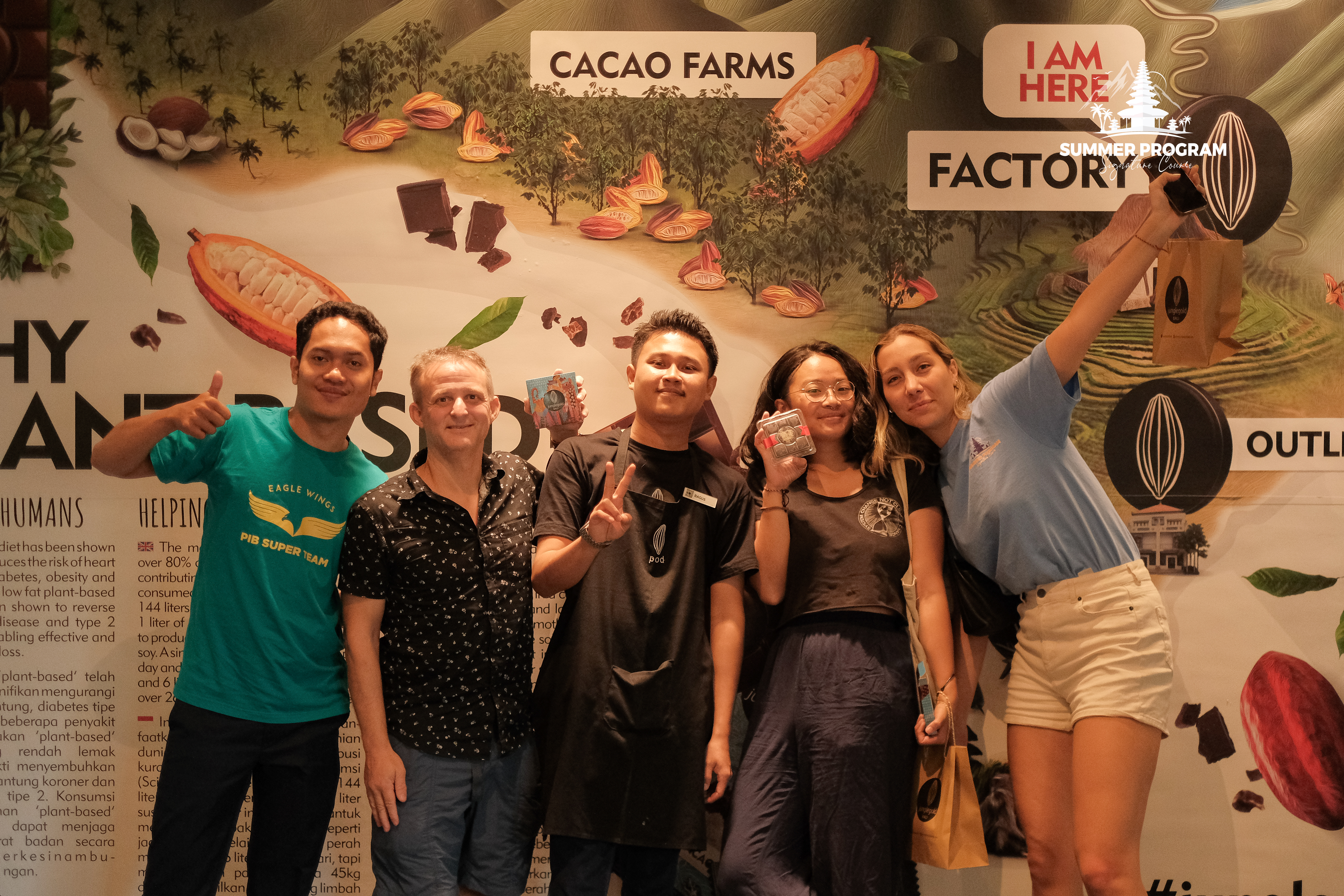
Reflect on the enriching day of cultural immersion and camaraderie as we return to the hotel. Cherish the connections made and the knowledge gained throughout the journey, inspired by the beauty and heritage of Bali’s landscapes and traditions.
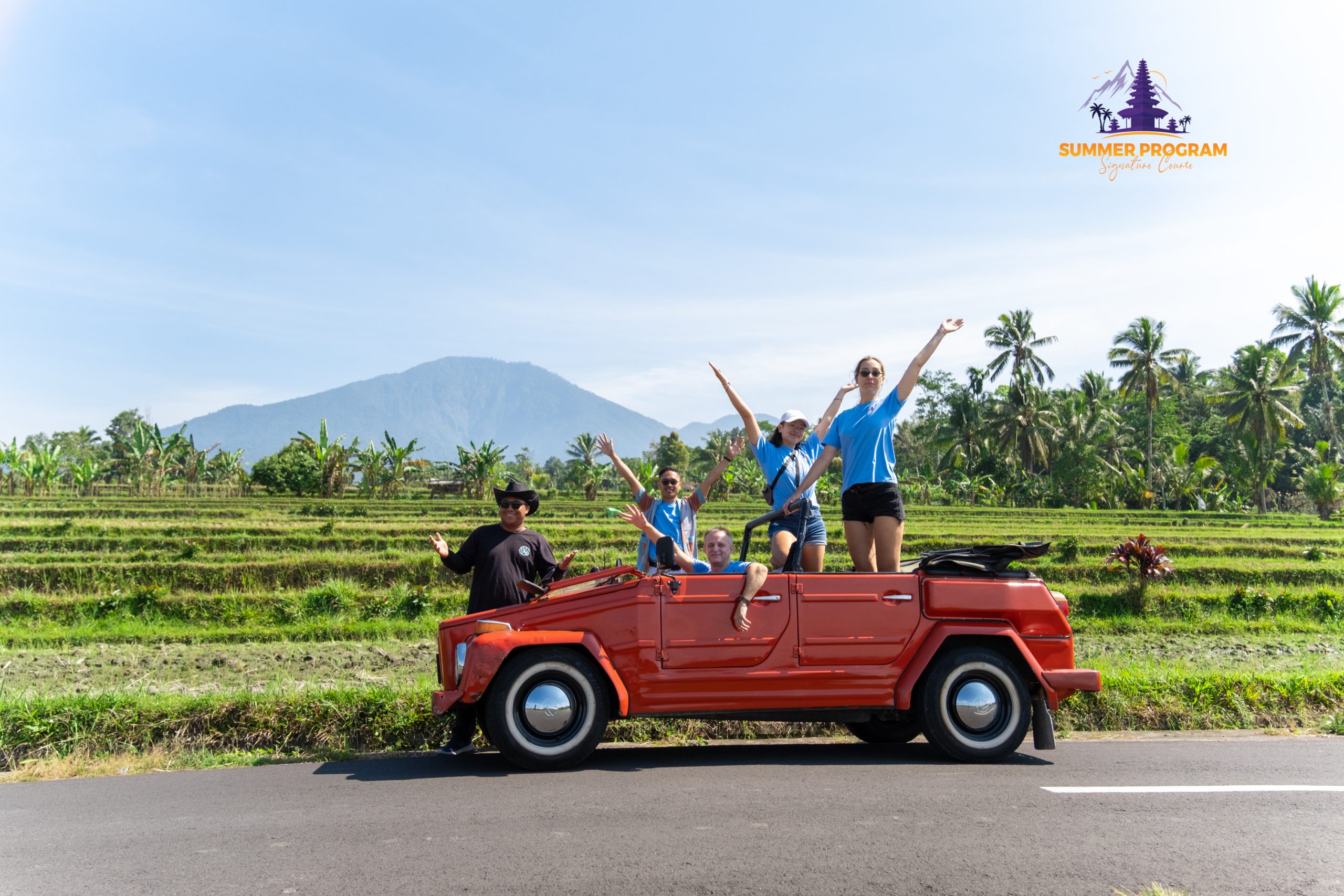 | 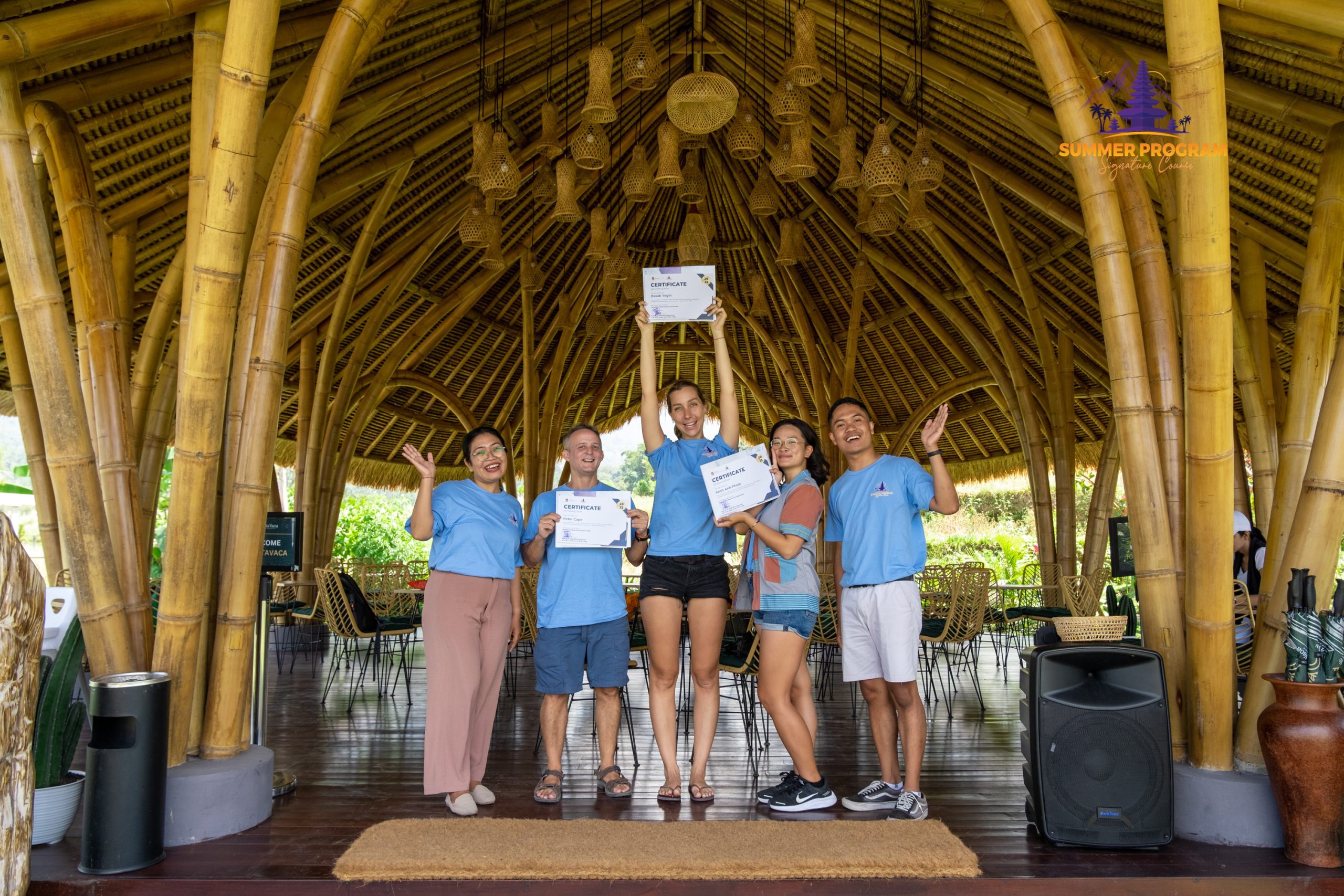 |
Total course of 240 hours with 20 credits will be given by PIB College
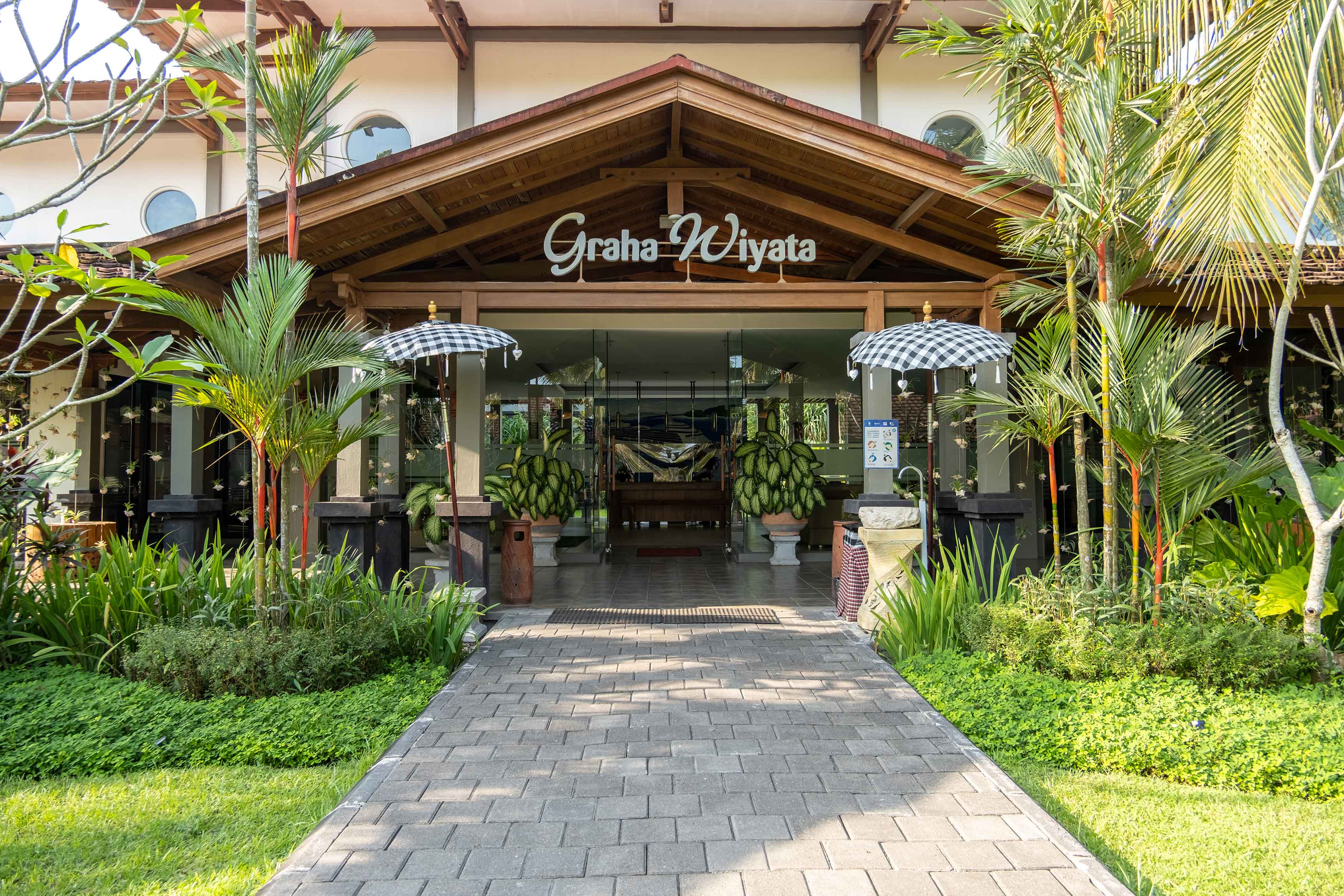
Nestled in the serene surroundings of Jl. Pantai Nyanyi, Beraban, Tabanan, Graha Wiyata Hotel is a premier accommodation designed to offer comfort and convenience for guests of Politeknik Internasional Bali (PIB) and beyond. With its impeccable service and modern amenities, Graha Wiyata is an ideal place to unwind, whether you’re here for business, study, or leisure.
Choose from our three elegantly designed room types, tailored to meet every need and preference:
Each of our 43 rooms is thoughtfully designed with contemporary decor, plush bedding, and all the modern conveniences to ensure a memorable stay.
Located on the picturesque Jl. Pantai Nyanyi, the hotel is surrounded by tranquil natural beauty and is just a short drive from Bali’s iconic landmarks. Graha Wiyata also boasts convenient access to PIB College facilities, making it a preferred choice for students, families, and business travelers.